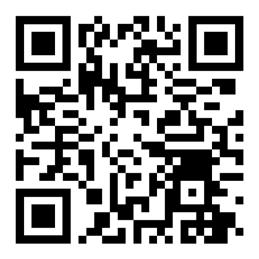INSIDE:

Refugee & Immigrant Voices in Action-Health Equity Preschool Success RISE AmeriCorps across IOwa




Executive Director
Donna Wilkin Interim Board Chair
Junyoung Lee Treasurer
Vi Nguyen Board Member
Karen Thompson Board Member
Dear friends,
I’ve got some big news. After a decade of joy and tears, hard work and hard lessons, a derecho, and public health crisis, EMBARC is opening a new chapter.
In the fall of 2021, the EMBARC Burma Community Advisory Board approved a motion to become an independent stand-alone organization. The devastating impact of the pandemic and the human rights abuses in Burma, spurred the board’s decision to focus on serving their diverse Burma ethnic communities and building their coalition. Founding staff member, and long-time lead, Abigail Sui, was voted unanimously to be the new director of EMBARC. Under her leadership, EMBARC will continue its existing Early Childhood Parent Navigator, Crisis & Advocacy and Education programs.
Along with the current Board of Directors, I am proud to announce the launch of Refugee and Im migrant Voices in Action (RIVA), a new statewide immigrant and refugee umbrella organization designed to grow leaders, build community and promote solidarity. Our current RISE AmeriCorps and the Health Equity Campaign will move under RIVA, along with our new non-profit Impact In cubator.
This Impact Incubator program will take the lessons learned during EMBARC’s past 10 years to sup port and strengthen emerging immigrant and refugee led groups. Iowa can’t afford to waste the skills, knowledge, and passion illustrated by our refugee and immigrant leaders — whether they’ve been serving their community for decades or are just beginning their journeys.
By partnering with refugee and immigrant leaders and their community organizations to elevate their voices and expand their capacity, RIVA will create a cascade of change that’s powered by our own potential.
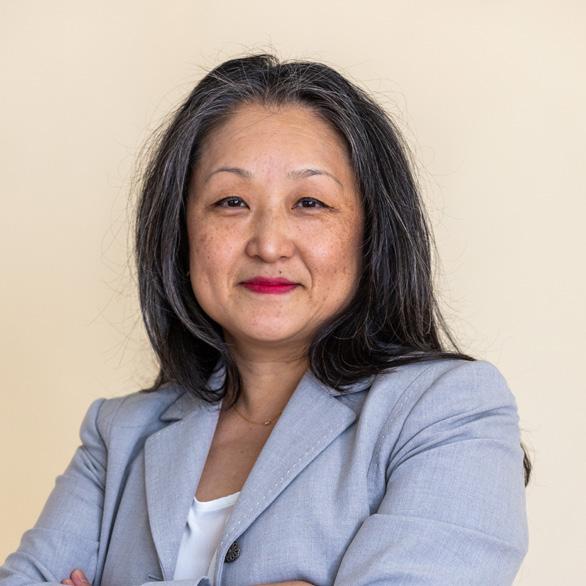
Watching leaders like Abigail and others at EMBARC and in the community grow over the years has brought me indescribable joy. Knowing that EMBARC started in 2012 with just a small group of thoughtful committed volunteers, brings me sustained hope.
Join me inside these pages in thanking the incredible individuals who have moved us forward into this new era. There is too much in the decade ahead for any one person or group to do alone. By con tinuing to invest in each other, we will all create a stronger, brighter world.
With gratitude,
Henny Ohr
Min Tun Board President
Lian Uk Thang Secretary
Hlah Soe Board Member
La Di Lazum Board Member
Yu Dah Board Member
Thar Pwint Board Member
Lucy Mawia Board Member
Thway Paw Board Member
Nearly ten years ago, I resettled in Iowa as a Chin refugee from Burma. I was disheartened to see my community’s struggle and the barriers they faced. Barriers to basic needs, like food and shelter; accessing education and medical care; understanding their workplace rights; and finding support.
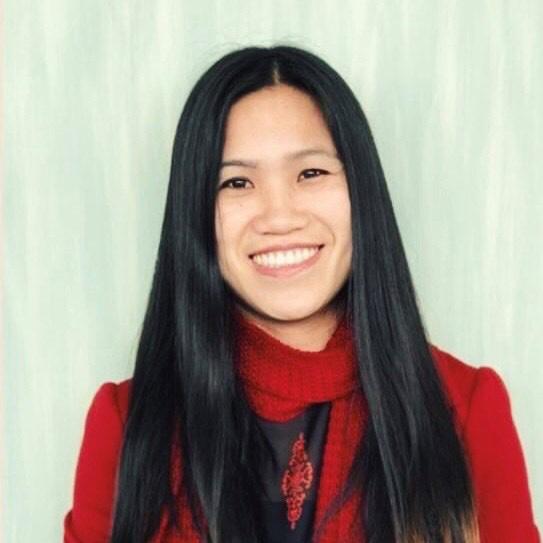
But the more I understood these frustrating barriers, I also witnessed the unwavering hope and connection within our community. I saw it in a mother, who, after a long shift at the meatpacking plant, supported a line of people outside her apartment by reading mail and paperwork. I witnessed this in a high school student, who missed school to take their family and neighbor to doctors’ ap pointments, and helped teach English on Saturdays.
I saw the struggle – and the hope. The barriers – and the effort to overcome. The hardship – and the deep connection and support within our community.
Because of this, it was easy to join as one of the founding staff members at EMBARC. It was an honor to put my support behind every person doing their best to make a difference. As a staff of three and a small group of dedicated volunteers from our community, we knew things could be better, and we were determined to try.
Today, our staff, volunteers, and advocates have made real changes in Iowa. We have seen transformations in our schools, workplaces, and most importantly, in our vision of what is possible for our future.
My sincerest gratitude goes to all our long-term partnerships with school districts, local govern ment, social services, and small businesses. You are too numerous to name, but know that your support has changed lives, and for some, it is not a stretch to say – has saved lives.
After leading our family services program for the last seven years, I am honored to now step in as Executive Director and guide our work in the next chapter. I am incredibly proud to be supported by our new Board of Directors, formerly the Burma Community Advisory Board. It is remarkable to witness how our separate, ethnic Burma communities came together to build a vision over the years. Their faith and support bring an energizing force to the continuing work of EMBARC.
Lastly, I thank Henny Ohr and the new Board of Directors at Refugee and Immigrant Voices in Action (RIVA). Our work together is just beginning!
With gratitude, Abigail Sui
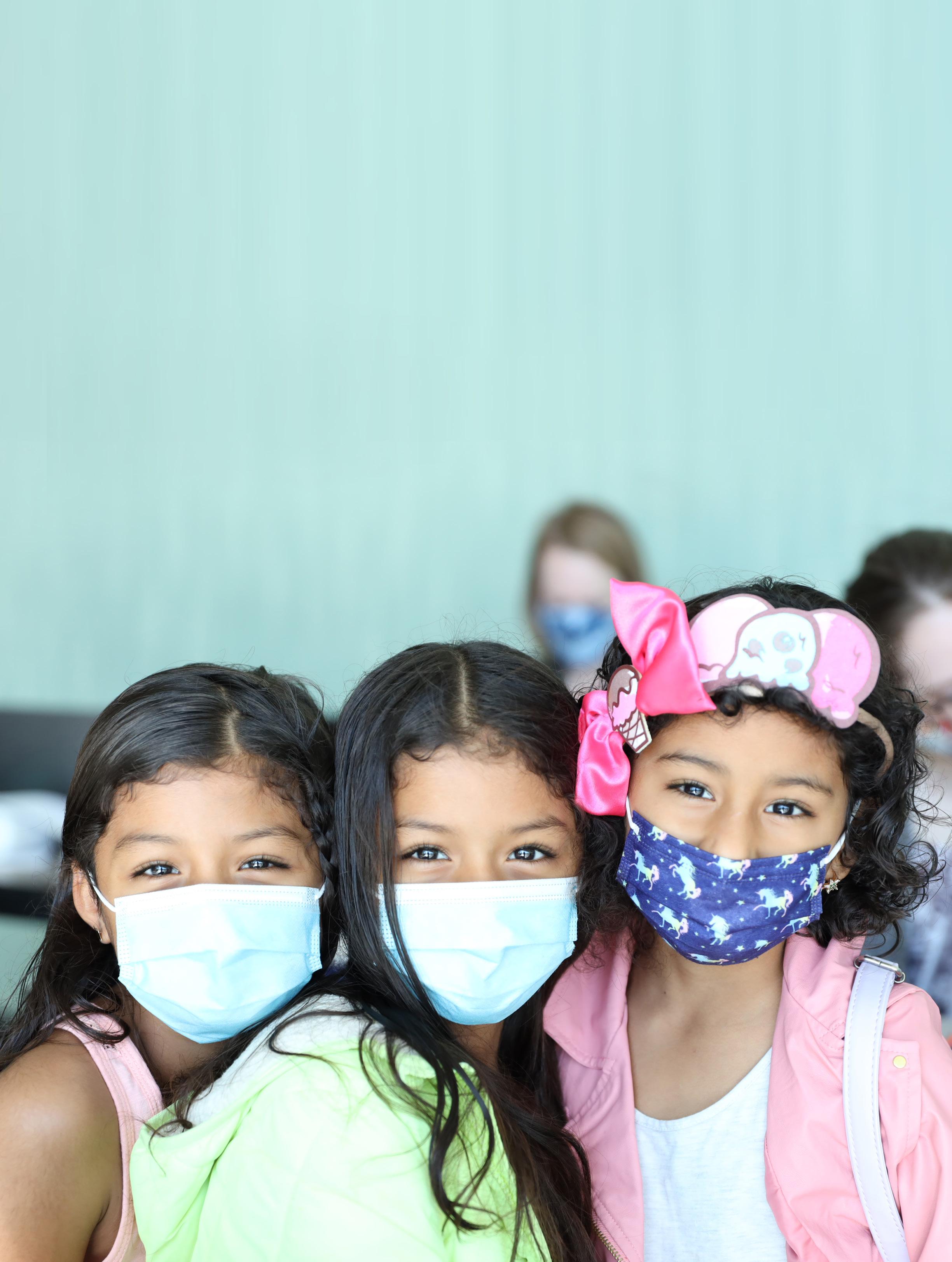 By Julia DiGiacomo
The Refugee and Immigrant Vaccine Alliance mobilized to offer children’s COVID-19 vaccine clinics.
By Julia DiGiacomo
The Refugee and Immigrant Vaccine Alliance mobilized to offer children’s COVID-19 vaccine clinics.
For many immigrants and refugees in Iowa, the COVID-19 pandemic brought a dizzying array of changes and obstacles. In addition to language barriers, many individual workers in industries like agriculture or food processing were ex posed to the virus at a higher rate. The many immigrants and ref ugees living in multigenerational households also faced increased risk and exposure.
Born in response to the crisis, the Refugee and Immigrant Vaccine Alliance (RIVA) helps communities stay safe and healthy by accessing the information and resources they need to make informed choices about COVID-19 vaccines. RIVA’s health equity campaign is commit ted to advocating for communities in order to fight health injustices. The vaccine campaign in diverse languages spread far and wide across Iowa’s communities, informing about 1,500 individuals in all.
After connecting refugees from Burma with urgent resources at the start of the pandemic, EMBARC joined forces with the Iowa Co alition Against Domestic Violence (ICADV), ArtForce Iowa, Latinx Immigrants of Iowa, and Nisaa African Family Services to further their health equity mission within wider communities. In tandem, the nonprofits officially founded the Refugee and Immigrant Vac cine Alliance (RIVA) in early 2022.
Jocelyn Hernandez, former program manager for the RIVA health equity campaign, said the alliance is a network of support for organizations serving immigrants and refugees. By disseminat ing translated information, connecting resources and partnering at events and clinics, RIVA strives to help immigrants and refugees ac cess what they need to get vaccinated and live a healthy life. “Health is essential for anyone to thrive,” Hernandez said. “I want our commu nities to be able to do just that: live a fulfilling life and live life to the fullest. That’s what drives me to do this work and work with leaders to achieve health equity.”
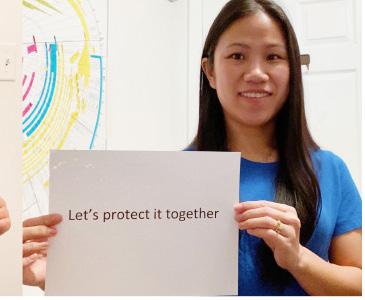
At RIVA’s core is collaborations within immigrant and refugee communities. Over a dozen refugee and immigrant leaders at orga nizations across the state joined RIVA’s growing network, including Al Exito, Amani Community Services, Iowa Commision of Latino
Affairs, Iowa Nepalese Association, Korean-American Society of Iowa, Korean Uiowa Student Association, Knock and Drop Iowa, Latinas Unidas Por Un Nuevo Amanecer and Linea de Ayuda. The health alliance is dedicated to supporting all of its member orga nizations with resources and strategies to combat misinformation surrounding vaccines and directly assist communities.
Through RIVA and partner organizations such as Primary Health Care, refugees and immigrants successfully received vaccines at 36 clinics designed to support specific cultural communities. Commu nity leaders provided translation and information to clients in their language. Starting when vaccines first became available in 2021, immigrants and refugees were informed about their eligibility and registered for appointments through various multilingual helplines. Speakers of diverse languages, including Spanish, Karen, Hakha Chin, Burmese, Karenni and more, were available at the clinics to answer any last questions and assist the process.
In all, about 1,700 community members received COVID-19 and flu vaccines at clinics following RIVA’s linguistically-relevant model. RIVA continues to host and support vaccine clinics and is planning specific events to serve broader cultural backgrounds, including those from African and Latin American cultures.
But as needs in the community shift, RIVA remains ready to as sist in new ways. Over the last year, at-home COVID-19 test kits emerged as a valuable new tool. However, the tests were prohibi tively expensive for some immigrants and refugees and not always readily available. In response, RIVA began distributing free tests. One RIVA alliance member, Korean-American Society of Iowa, dis tributed over 1,500 at-home COVID-19 test kits to their communi ty, complete with clear instructions in Korean and English.
Latinx Immigrants of Iowa is one of the only in the state provid ing follow-up support in Spanish after community members receive a vaccine. They remind individuals and assist them with obtaining second doses or booster vaccines.
RIVA has also made strides in delivering vaccine education at a wide range of events across Iowa, said former community navigator
“Health is essential for anyone to thrive.”
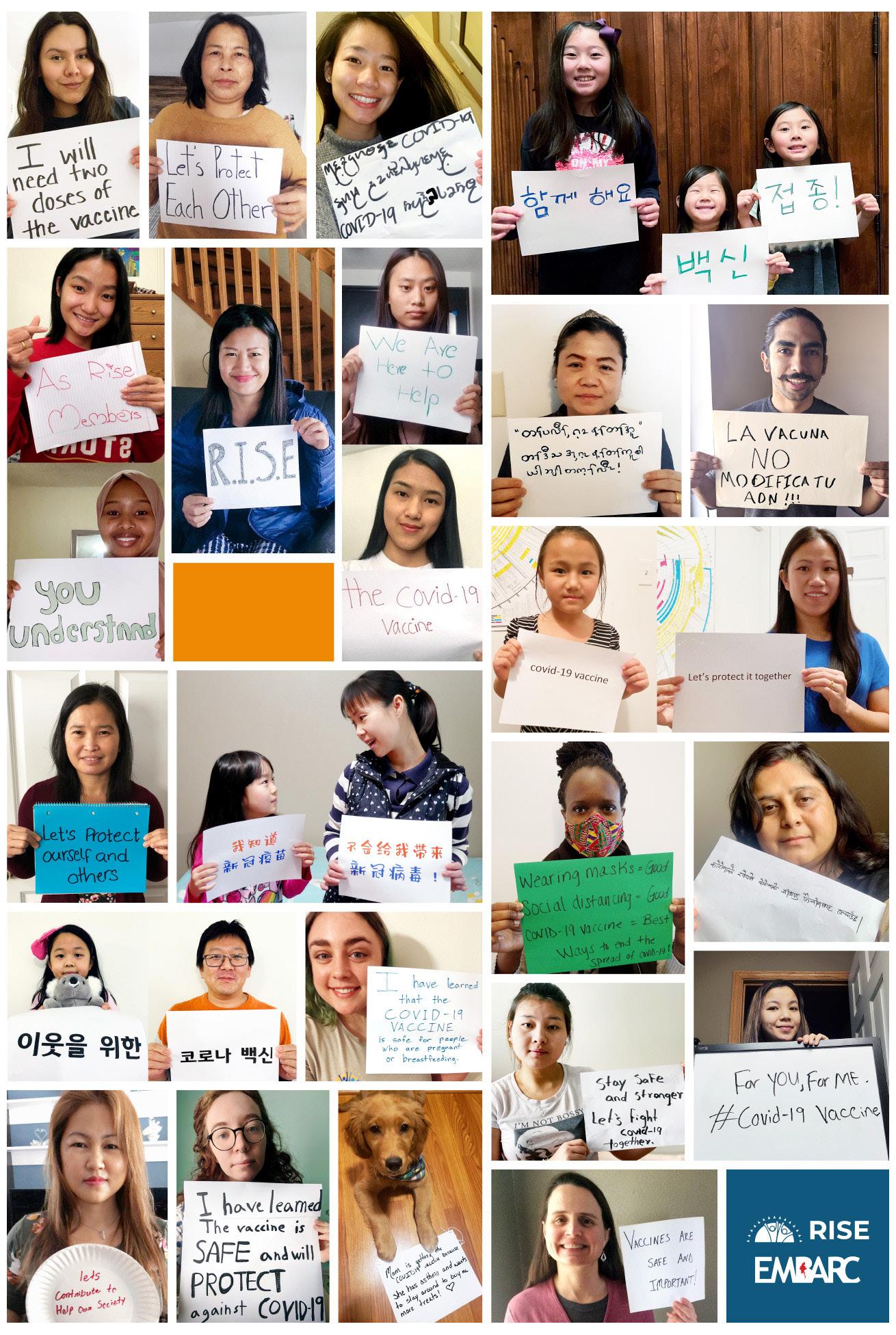
Cesar Marquez. He’s given out COVID-19 tests and information at countless resource fairs, health fairs, cultural festivals, clinics and even a school registration event. Now, Marquez hopes to broaden RIVA’s reach by bringing resources into rural communities with sig nificant Hispanic populations, such as Marshalltown.
Advocating for immigrant and refugees’ voices on health is another of RIVA’s primary missions. By connecting directly with communities, the team understands the barriers surrounding health access and health services in Iowa. They subsequently uplift the experiences of immigrants and refugees to policy organizations and elected officials, bringing the prob lems to their attention.
In collaboration with policy organizations, RIVA is also advocating for change within health systems. For example, the team hopes to boost access to financial assistance from hospitals by simplifying the appli cation process. They continue advocating for an ap plication process that will not deter immigrants and refugees, especially those who are undocumented.
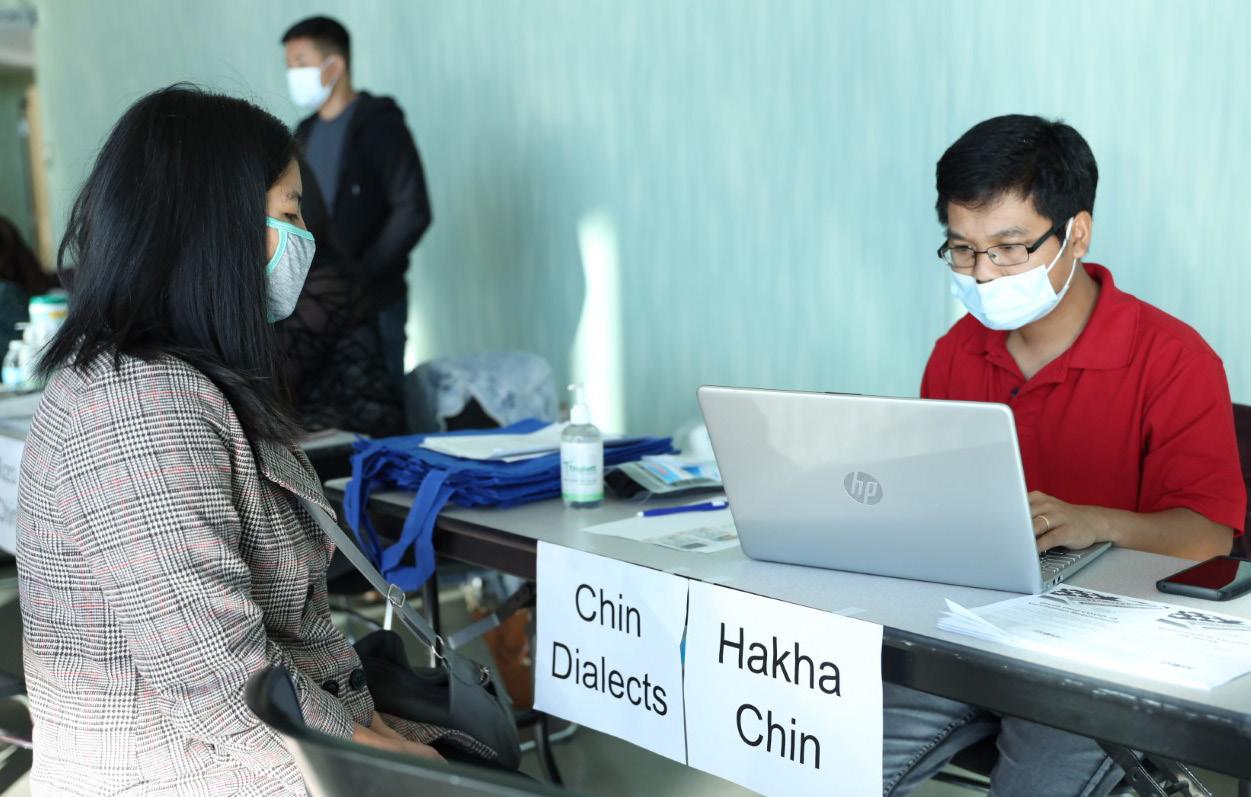
“We try to amplify [immigrant/refugee] voices so they are getting to the ears of people in power and create change,” Hernandez said. Although COVID-19 cases are now gradually declin
ing in Iowa, the mission to combat health inequities is far from over for the team at RIVA. Immigrant and refugee communities still struggle to access the health resources they need, due to financial barriers, lack of knowledge about the U.S. healthcare system, language and literacy barriers and more.
In the future, RIVA will strive to widen its scope beyond COVID-19 to address broader health issues. RIVA looks forward to communities coming together to fill in the gaps of what immigrants and refugees need to overcome barriers in accessing care. Through advocacy and equitable access to health resources, RIVA hopes to promote happier, healthier lives for immigrants and refugees across Iowa.
“I think it is important for everyone to get the resources so they can make their own decisions while being well-informed decisions,” - Marquez said
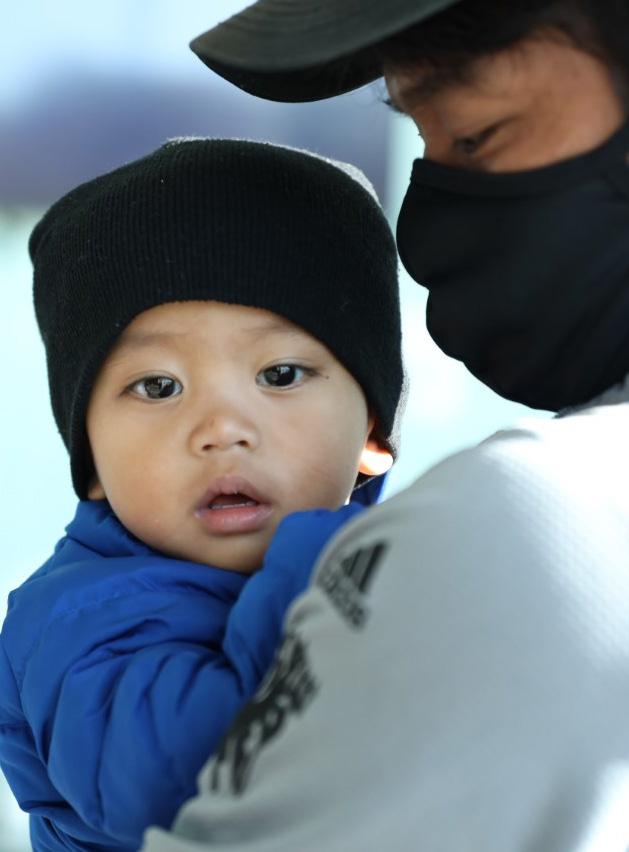
EMBARC and Woodlawn Early Childhood Center welcomed refugee and immigrant families to ensure that every child in Des Moines has a chance to receive a quality preschool education.
Central Iowa resident Sui Par is a mother of three. After mov ing to Iowa, Sui joined EMBARC’s Community-Based English as a Second Language classes (CBESL).
Take a look inside EMBARC’s Access Center in Des Moines, where community navigators and volunteers work together to provide direct services to clients.

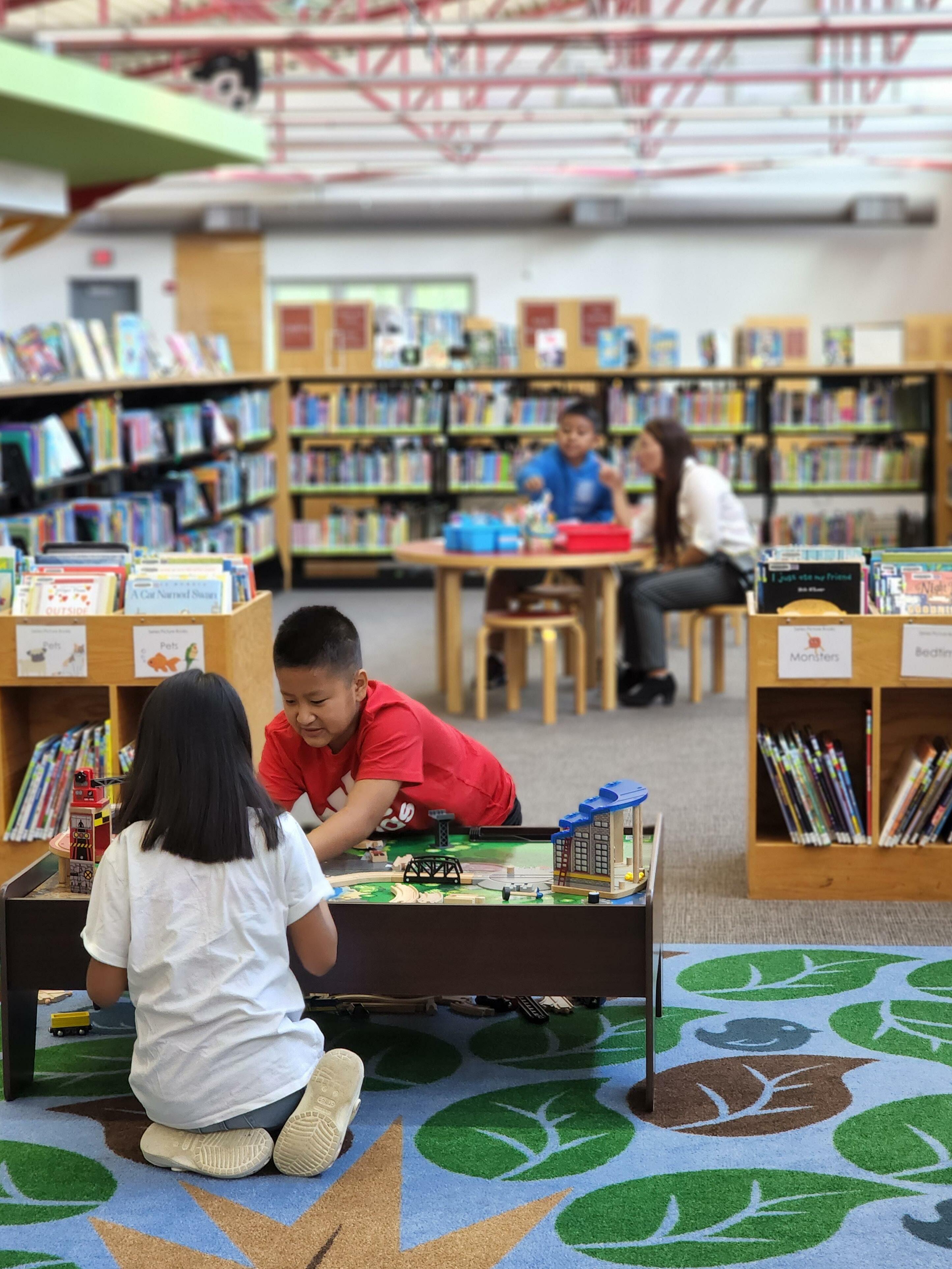
“Since we can’t speak [English], you guys can be our voice and that is really important to our community.”
— Chit Moo
his spring, EMBARC and Woodlawn Early Childhood Center welcomed refugee and immigrant families, as well as Des Moines Public School (DMPS) staff members to ensure that every child in Des Moines has a chance to receive a quality preschool education.
EMBARC and DMPS registered 48 chil dren for preschool throughout Des Moines, Johnston, and Urbandale through the two registration events as well as through EM BARC’s Access Center, Parent Navigators and case management services.
DMPS preschool registration specialists joined EMBARC Parent Navigators to help families work through the sign-up process and enroll their 3-year-old and 4-year-old children in universal pre-kindergarten and Head Start programs.
“I’m very happy that EMBARC did an event for preschool registration,” said Amos Ceu, Burmese community navigator for EMBARC, who attended the event. “Even though a lot of the parents from our community don’t have a good education back in Burma, they under stand how important education is. Since they did not get a chance to get a good education, they want to give their kids a chance to learn and get a better education.”
According to Ceu, many parents did not know about the preschool, where to start, or how to go about registering their children. EM BARC posted video announcements in several Burma ethnic languages explaining the impor tance of preschool. In addition, EMBARC par ent navigators reached out to parents.
“We called almost every one of the Parent Navigator clients from EMBARC and asked them if they have kids that are younger than five,” Ceu said. “We also told them to come
to our registration event and that we would help them register their kids for preschool. I’m glad that I was able to help the families.”
While preschool magnifies students’ suc cess, the process is often impossible to nav igate without knowledge of the U.S. educa tion system or fluency in English.
Plah Eh Paw, mother of two and an EMBARC client, was able to get her daughter registered for preschool with EMBARC’s help. Paw does not speak English, but received help through an interpreter at the registration event. Paw said that it would be a problem if she wasn’t able to receive the language support.
“Without EMBARC, I can not [register for preschool],” Paw said through an interpret er. “When they go to school, they learn, they meet a new friend, they are happy.”
EMBARC staff also helped parents out side of the registration events. When Chit Moo* was met with difficulty, she called EM BARC Parent Navigator Program Coordina tor Lal Muani for help.
Moo’s daughter went to Rolling Green El ementary for preschool this past school year and wanted her son to be enrolled for the com ing school year. Rolling Green’s start and end times are a perfect match to Moo’s work sched ule and the location was close to her job as well.
Despite working closely with an outside interpreter to register her child, Moo worried they would miss the February deadline after the interpreter stopped responding to her.
By February 7, Moo still had not heard back from him. She called and texted and he did not answer.
She waited two weeks for his response be fore reaching out to EMBARC. When Muani called Rolling Green, she confirmed that Moo’s son was not on the list of students registered
for the 2022-2023 school year. The school’s waitlist had already grown, and Muani learned they could not guarantee that Moo’s son would be able to attend. Muani found Moo’s son an open spot at Johnston Early Learning Acade my’s four-year-old preschool.
It is a troubling feeling having to depend on an interpreter to get things done for her, Moo said, but she feels relieved that she can always trust EMBARC to help.
“Whenever we need help then we just call, and you guys support the way that we need,” Moo said through an interpreter. “Since we can’t speak [English], you guys can be our voice and that is really important to our community.”
Preschool proves crucial to a child’s longterm success in school. In preschool, children build a foundation for their academic careers. Data collected from DMPS found that when children are denied preschool, only 29% are able to meet kindergarten reading bench marks. Students without preschool start kindergarten 18 months behind their peers developmentally. In contrast, children who attend preschool are almost twice as likely to meet math benchmarks and more than twice as likely to meet literacy benchmarks from kindergarten through fifth grade.
EMBARC staff are here to help families nav igate the education system every Wednesday in the Access Center, through the helpline, or through case management services. EMBARC hopes to expand these efforts to other area school districts to deliver the promise of uni versal preschool to every child and family in our refugee and immigrant communities. *Client pseudonym
EMBARC Parent Navigators took community moms and 22 kids to Forest Avenue Library in summer 2022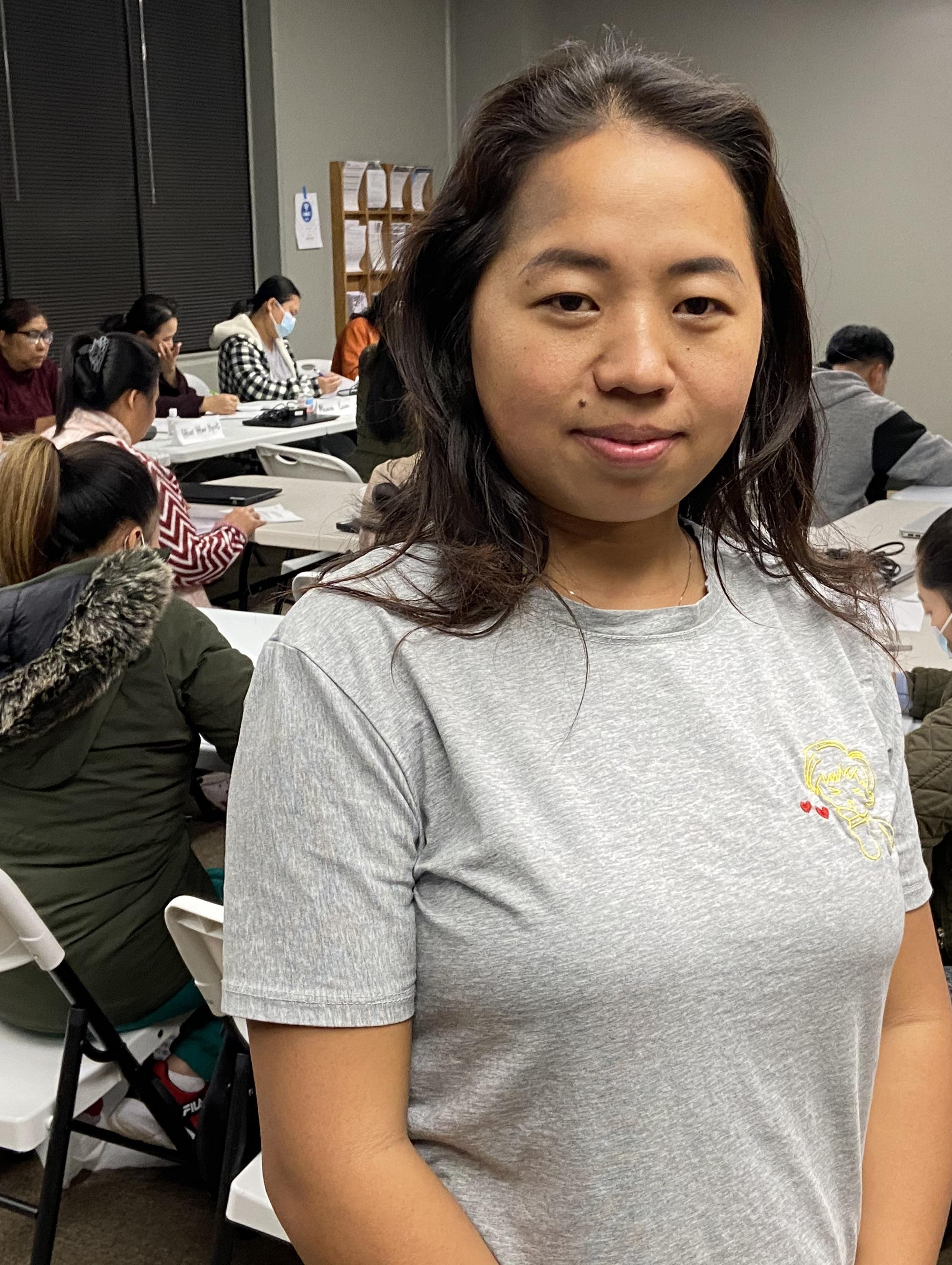
Central Iowa resident Sui Par is a mother of three. After mov ing to Iowa, Sui joined EMBARC’s Community-Based English as a Second Language (CBESL) classes, and soon connected with other services at EMBARC. Sui has taught as a CBESL co-teach er, and a mentor/advocate in IT Navigator and Parent Naviga tor programs. The following is Sui’s story of moving to Iowa.
In 2011, I arrived in America with my husband. We are members of the Chin Falam community from Bur ma (also known as Myanmar). When we first arrived here, we stayed in Rhode Island. After a few months had passed, a friend from Des Moines called me. They encouraged me to move to Iowa so that I could be better supported as someone new to this country. My friend told me about how there were many more resources and people from the Chin community there to help me. After learning about what Iowa could offer, my husband and I relocated there in 2012.
Soon after arriving in Iowa, I learned about EMBARC and started participating in the CBESL program to learn English. One of my favorite memories from the program is from a time when students were instruct ed to speak to each other in the language. English grammar can be confusing for me, so this activity was actually very helpful. Not only that, but I am very proud to say that I received the second highest score on my Level 2 English exam! Since then, I have worked my way up to Level 6. Beyond CBESL, I’ve also taken part in the IT Navigator program, which taught me how to use a computer.
Outside of its programs, EMBARC has helped me in many other ways. Its staff and volunteers have assisted me with understanding and filling out important paperwork, attended and translated at medical appointments, in addition to many other important services. As a refugee who did not know much about navigating life in America, it is reassuring to know that if I need help with something, I can go to EMBARC.
At times, I feel frustrated because I still need to learn so much. I do not want to have to rely on a trans lator, but I know that to reach this goal, I must keep educating myself so that I can provide for my family. When I feel down, I remind myself of my fellow refugee community members who need help but do not know where to go. But because I have been involved with EMBARC, I do. This motivates me to keep going and to think of ways to connect my community members with the resources that they need. I encourage them to participate in EMBARC’s many programs and to use its services so that they have the skills that they need to live in America. I know it is hard work, but I tell them to never give up.

Throughout my learning journey as a refugee, there have been times where I have felt very alone. I never want anyone else to feel like that, so it is important to me that I take the time to provide whatever someone may need. This is why I became a co-teacher for EMBARC. I co-teach in the CBESL and IT Navigator pro grams, as well as work as a Family/Parent Navigator. One of my favorite things about working with EMBARC is being able to connect with my students and educate them about how to navigate life here.
I am so thankful for EMBARC and the many resources and services that it provides to the refugee com munity in Iowa. It has truly given us so many opportunities that we wouldn’t have had otherwise.
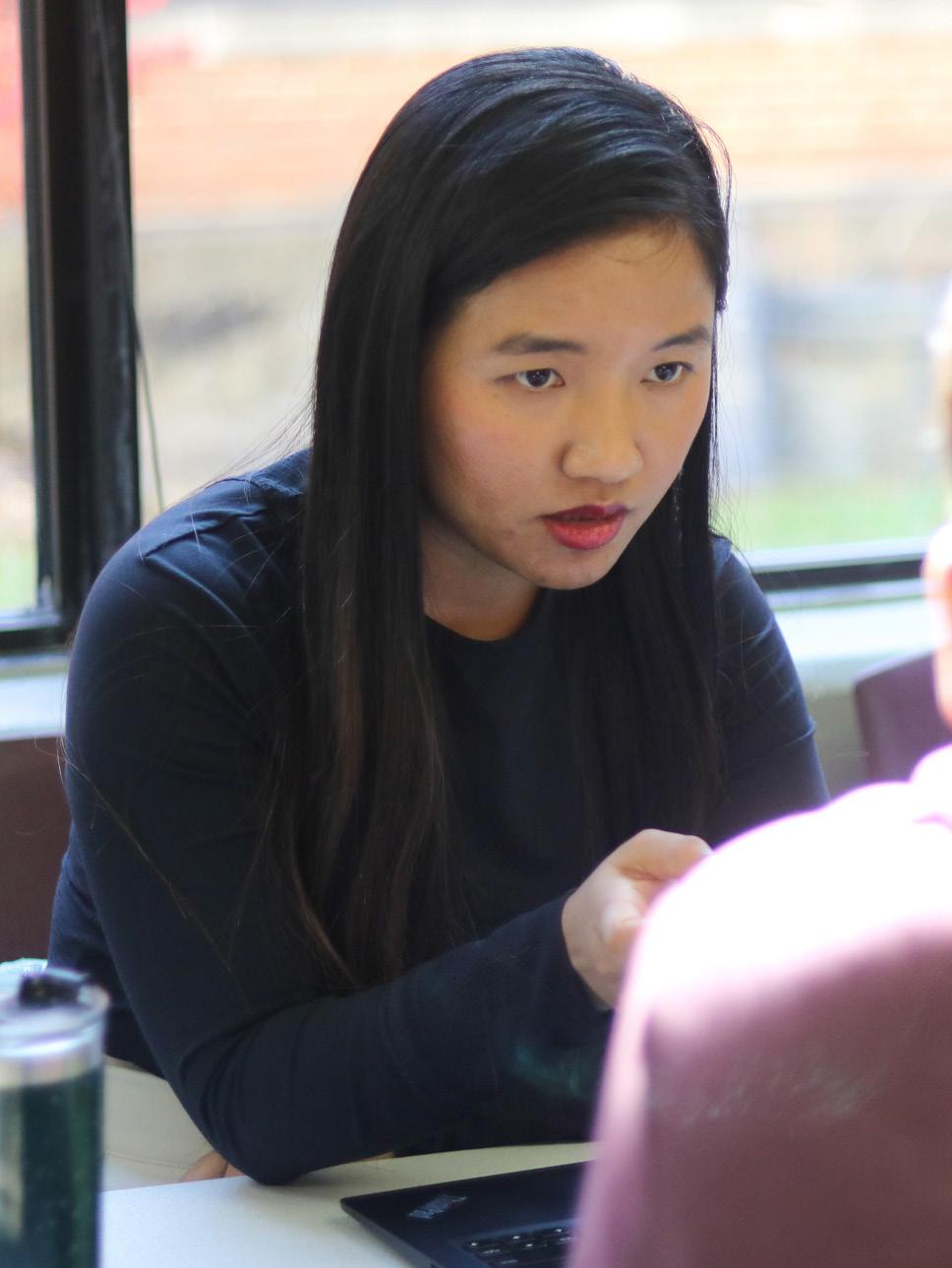 Crisis and Advocacy Program Coordinator Dim Muan Kim and volunteer Deb Timmons work together to assist a client with resource navigation.
Crisis and Advocacy Program Coordinator Dim Muan Kim and volunteer Deb Timmons work together to assist a client with resource navigation.
Many non-English speaking communities struggle to access resources and accomplish daily tasks such as reading mail or making phone calls. The EMBARC Access Center provides wrap-around direct services to new and existing clients each week on a first-come, first-serve basis. Designed to provide assistance to the refugee and immigrant community, the Access Center helps clients navigate resources essential to their daily lives.
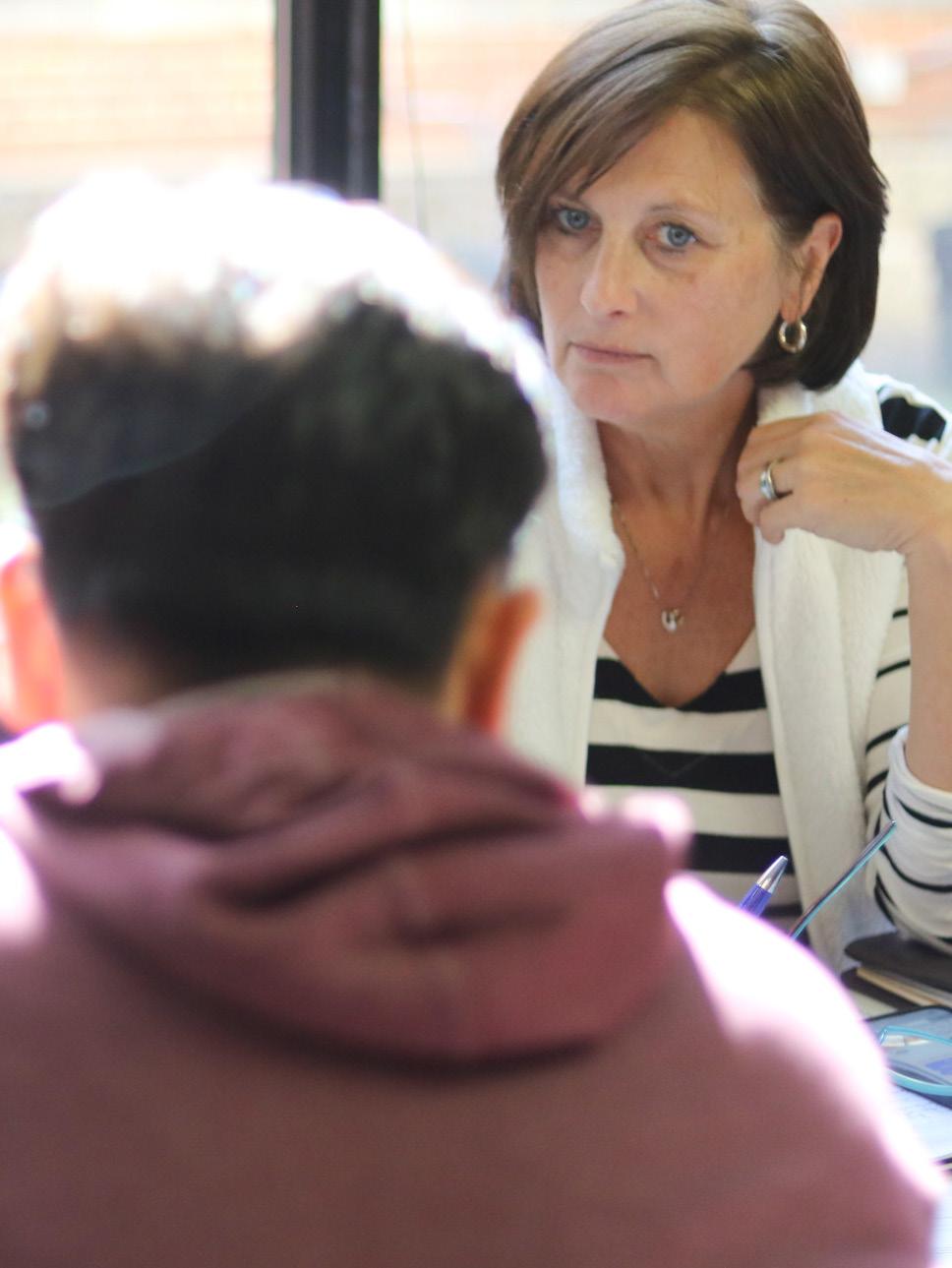
5.
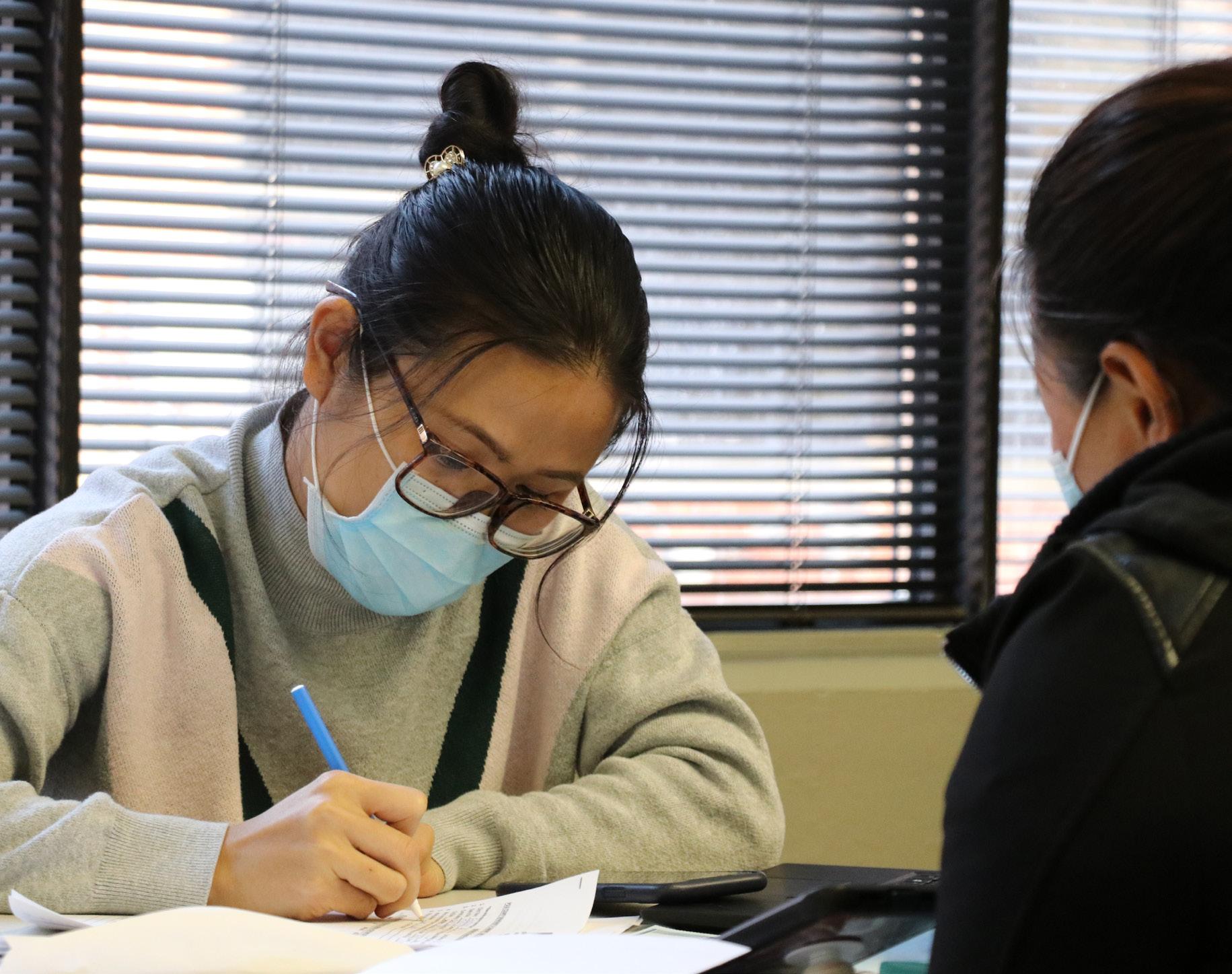
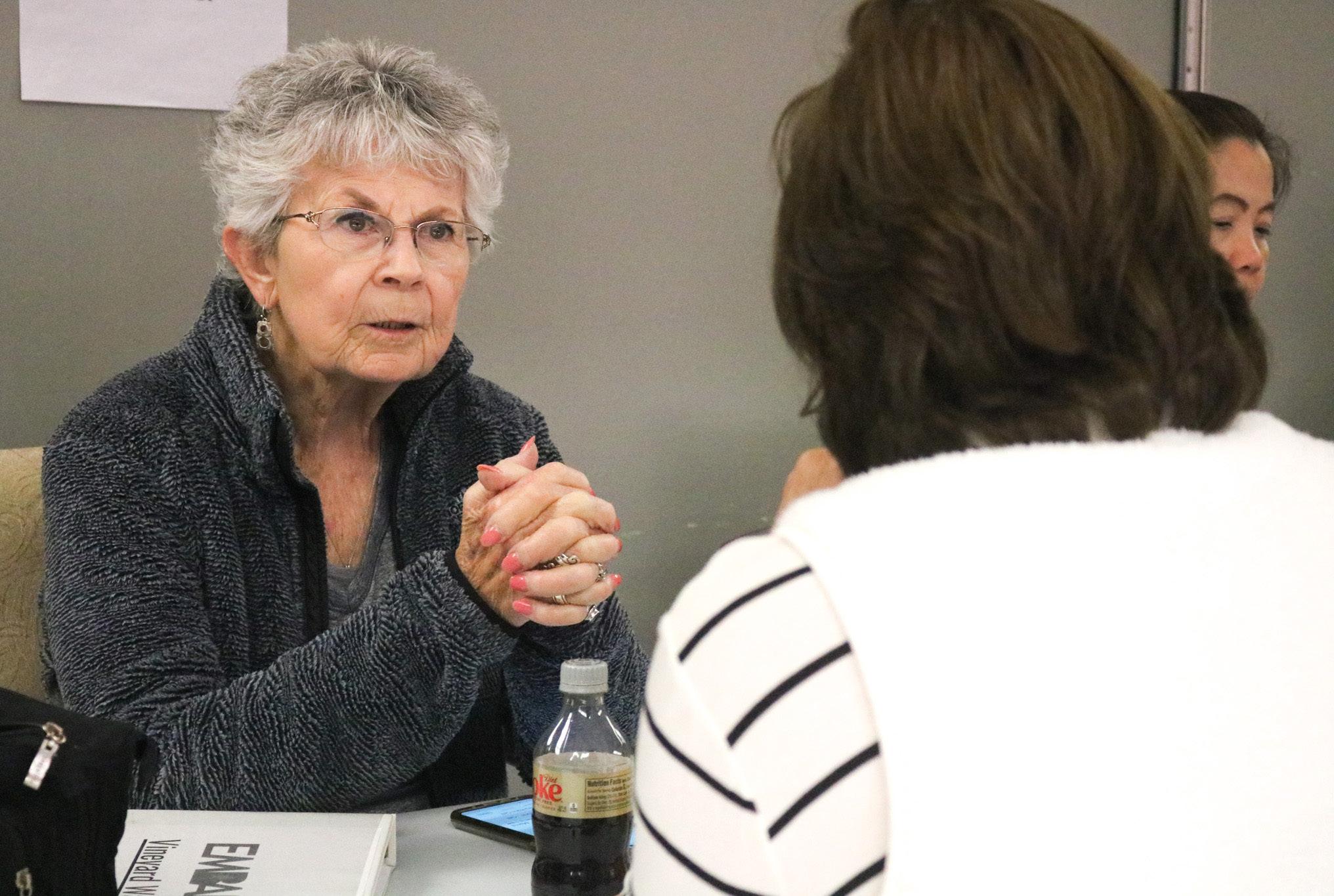 Volunteers like Norma Rohn assist clients and community navigators by using their skilled backgrounds to guide them through life in the United States.
Volunteers like Norma Rohn assist clients and community navigators by using their skilled backgrounds to guide them through life in the United States.
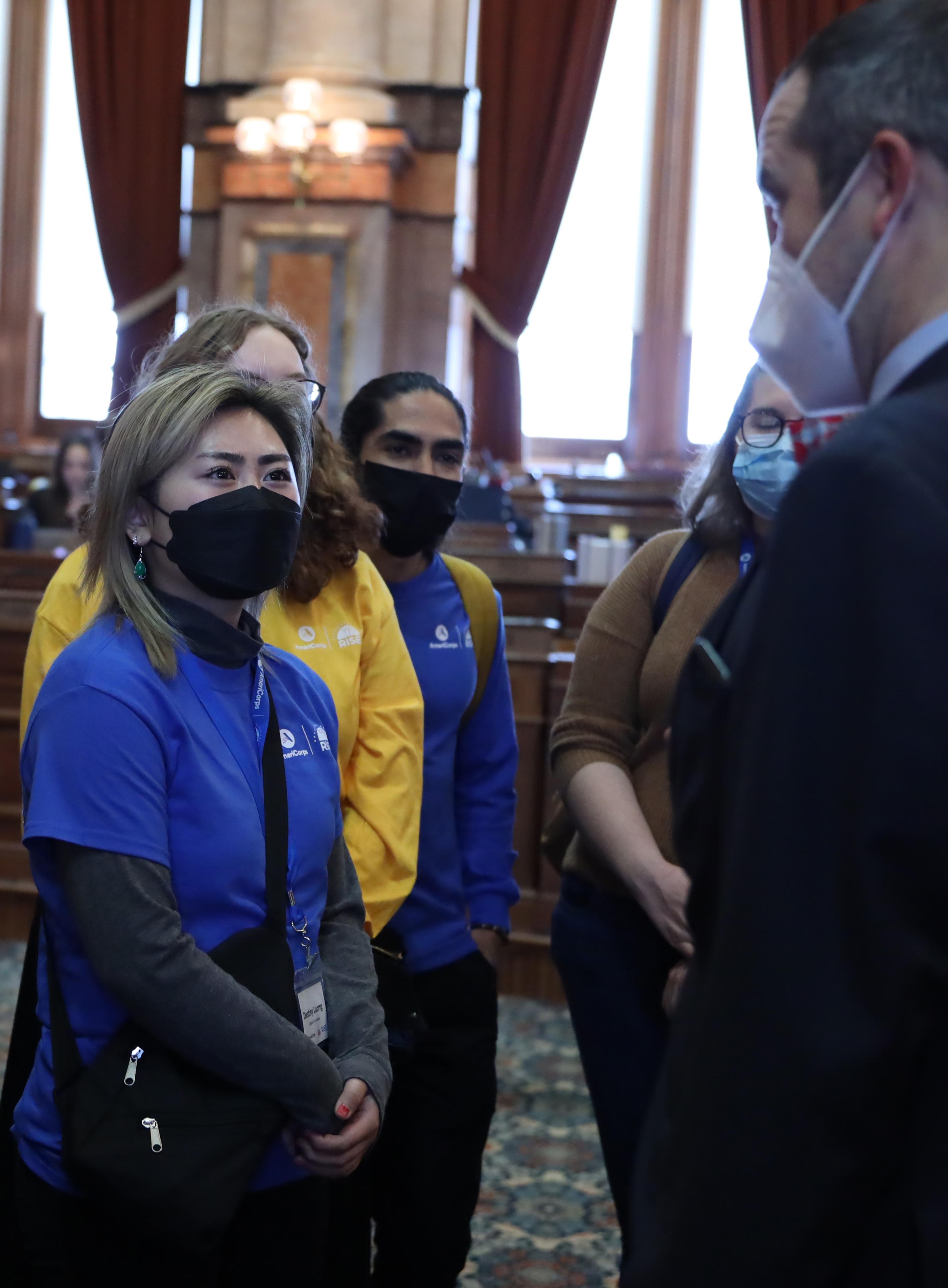
RISE AmeriCorps members are partnering with Iowa Workforce Development to help immigrant and refugee students excel with quality jobs.
RISE AmeriCorps members and staff at the Catherine McAuley Center are helping Afghan refugees resettle in Iowa and adapt to their new lives.
Multiple
Learn about the background and service experiences of a few of the RISE AmeriCorps alumni.
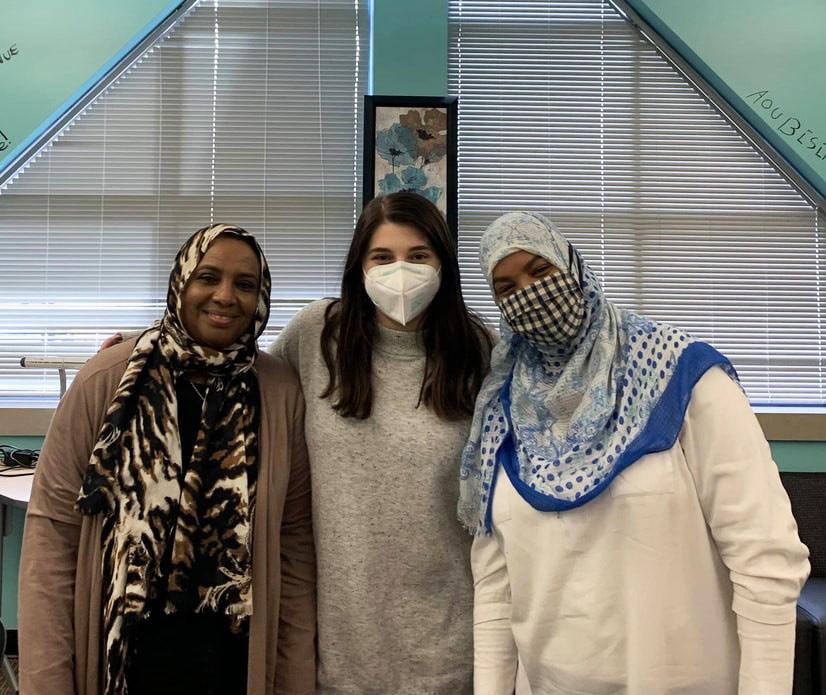
RISE AmeriCorps members at Kirkwood Community College are bridging the divide between immigrants and refugees and programs to help them fill qual ity, in-demand jobs. Since summer 2021, a partnership between Iowa Work force Development (IWD) and Kirkwood’s TRIO Student Support Services program has forged the way for more immigrants and refugees to enter the workforce.
“At Kirkwood, the benefit of our program is that we’re really connected to the stu dents and the community here,” TRIO ESL Director Mallory Petsche said. “We started this partnership because there was a gap between the community accessing and know ing these programs IowaWORKS has.”
RISE AmeriCorps members and Kirkwood’s TRIO program collaborate regularly with IWD Workforce Consultant Shane Greve. Greve meets one-on-one with Kirk wood students and discusses IWD’s wide array of services that assist with tuition, childcare, transportation, job searches, career planning and more. IWD programs such as GAP grant Iowans the funds to train and enter in-demand jobs. Certified nursing assistant (CNA) training is a particularly popular pathway among the Kirkwood com munity, which is helping to fill a shortage of care workers in Iowa.
Immigrants and refugees often struggle to overcome language and technology bar riers on their own, which limits their ability to receive support from IWD. RISE Amer iCorps members boost accessibility of IWD programs by acting as a cultural guide, in terpreter and advocate.
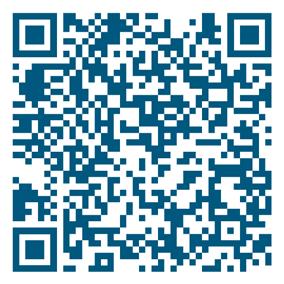
“For students who were at the point where they didn’t think they would be able to continue with their education, they’re now getting support to be able to pay for school,” Petsche said. “Now they’re getting into these programs and getting the educa tion they need to get a higher paying job, while also filling these huge workforce needs.” Before Aamira* contacted TRIO, the single parent and immigrant was preparing to drop out of school earlier this year. Struggling to pay bills, find childcare and pinpoint exactly what she wanted to do was causing a crisis in Aamira’s life.
The team stepped in. Working with RISE AmeriCorps members, Aamira defined goals for herself and her family, and found resources to help financially. Months later, Aamira is now successfully completing business classes and is on her way to achieving her dreams.
Greve said he witnessed similar successes, where clients’ livelihoods were trans formed. Many clients he works with are working to earn their commercial driving li censes and receive higher-paying jobs with better benefits in industries such as trucking.
RISE AmeriCorps members, who often come from the immigrant and refugee communities they serve, act as the messenger to inform about the many resources available at IWD. Members refer and schedule meetings to kick off the process with IWD.
Both at Kirkwood and upon requests from the Iowa WORKS Center in Iowa City, RISE AmeriCorps Member Farhain Mohamed interprets for Greve with fluent Ara bic and English skills. Mohamed and fellow RISE Amer iCorps Member Fatima Abdelhaleem’s language skills have been vital for supporting Iowa City’s large Suda nese population.
“These individual meetings are really helpful because the students get a lot of help from these meetings and after the meetings I follow-up, like did you get in all of your paperwork? How is the process going? And they send out if they need more help,” Mohamed said.
RISE AmeriCorps members like Mohamed continue discussions beyond Greve’s capacity in appointments. They coach students and community members along the difficult process of choosing career options and selecting the right classes to fulfill their ambitions.
This year, Kirkwood, RISE AmeriCorps members and IWD will be sharing information with even larger audi ences. They plan to continue hosting information ses sions and registration assistance so groups of community members can learn to access helpful resources.
“I just think having these types of services and these connections really benefit people in our community,” Greve said. “There’s a lot of students at Kirkwood who aren’t aware of these [IWD] services, and I think the RISE AmeriCorps program has helped bridge that gap.”
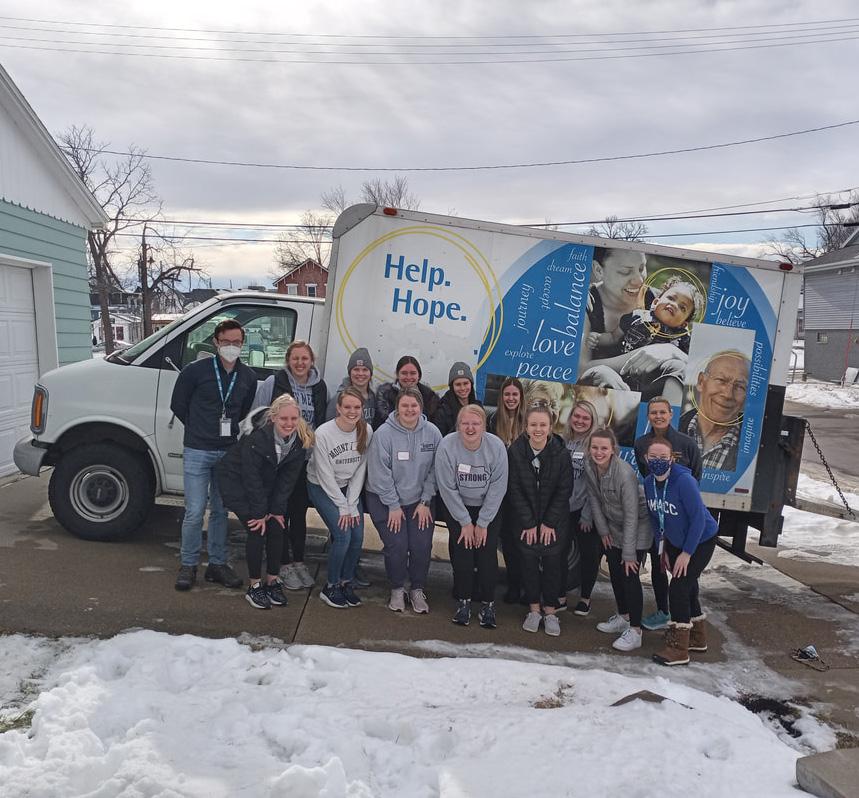 By Julia DiGiacomo
By Julia DiGiacomo
When refugees fled Afghanistan following Taliban control in 2021, staff at the Cather ine McAuley Center (CMC) in Cedar Rapids needed to prepare emergency assistance immediately for incoming families. RISE AmeriCorps members joined the allhands-on-deck effort to welcome Afghans resettling in the Midwest.
During just a two week period in November 2021, over 80 Afghan refugees made their way to Cedar Rapids. From November to February 2022, 250 Afghan refugees were welcomed by the CMC team and volunteers, said RISE AmeriCorps Member David Clower.
In affiliation with the U.S. Committee for Refugees and Immigrants (USCRI), CMC is responsible for resettlement services to support refugees during their first months in the country. From coordinating housing to medical assistance to cultural orien tation, CMC is the official guide in Cedar Rapids for refugees abruptly arriving in a foreign land and culture.
Clower said the number of people arriving poured in like a tidal wave, in comparison to the usual trickle of refugees resettled, mostly from Central Africa. The organization usually resettles only about 150 clients over a year.
CMC immediately stepped up with the most urgent needs, including short-term housing. Clower said they usually try to set up refugees in apartments, but due to the overwhelming number, the organization made temporary housing arrangements with local hotels. CMC also set the refugees up for
success by helping them enroll in public benefits like electronic benefit transfer (EBT) or Medicaid and receive medical screenings.
“Now, we’re trying to get people into long-term housing, get kids enrolled in school, work with people to get them into English classes and help them figure out employment options,” Clower said.
RISE AmeriCorps members and staff also initially welcomed the rush of arrivals with a cultural orientation to life in the U.S. RISE AmeriCorps Member Laurent Ramazani proved especially beneficial in guiding students through four classes, covering topics such as American culture, how to navigate the public bus system, how to receive medical help and much more.
“If you think of it from the perspective of an Afghan evacuee who has been pulled in a lot of different directions and now planted in a new community, providing something like bus orientation is so important,” RISE AmeriCorps Member Victoria Conoan said.
With the help of donations, CMC also arranged outings to raise spirits and introduce Afghans to Cedar Rapids. RISE AmeriCorps members and staff provided transportation and coordinated trips to see the Nutcracker ballet and spend a day at the Play Station, a threestory indoor playground.
“This is a way to get people out of the hotel in the middle of the coldest months of the year, when they’re cut off from the community and everything’s new and strange,” Conoan said. “It was really neat to see because the kids had been cooped up in the hotel. They were just so excited to burn off energy at Play Station.”
Going forward, CMC is dedicated to following up with educational services like English classes and job readiness training. Conoan and Clower said many of the refugees previously worked for the U.S. military bases and have ample skills. With resources and education from CMC, they have the chance to gain quality jobs again.
“I want to see people stay in Iowa,” Clower said. “I would like to see Cedar Rapids be a place that really welcomes ref ugees from all over the world.”
RISE AmeriCorps members welcome a rush of Afghan refugees to Cedar Rapids in November 2021, setting them up for success with housing and public benefits. Photo provided by the Catherine McAuley Center.
David Clower
I would like to see Cedar Rapids be a place that really welcomes refugees from all over the world. —
At the Catherine McAuley Center, RISE AmeriCorps members support mobilization for incoming Afghan refugees.
Centro Latino of Iowa, La Luz Centro Cultural, and Linea de Ayuda en Iowa/Iowa Spanish Helpline are three RISE AmeriCorps sites whose main mission revolves around serving Hispanic communities. Each site re sponds to the unique needs of its surrounding communities.
Centro Latino of Iowa in Council Bluffs serves as the only Latinx-based organization in Southwest Iowa. Its services run the gamut from cultural celebrations to resource navigation for immigrants and refugees. The organization doubled their space in September 2021 to supply more room for in-person classes such as computer classes, English classes, and job coaching. Executive Director Ramon Calzada said their HiSET (High School Equivalency Test) class in partnership with Iowa Western Community College helps Spanish speakers gain a high school education in their own language and pursue better jobs.
RISE AmeriCorps members joined Centro Latino for the first time in summer 2021, where they assisted with work force readiness tasks like job coaching.RISE AmeriCorps members have continued these efforts and assist with classes in Centro Latino’s new space. Calzada said one-on-one support with clients is especially needed.
“
[RISE] AmeriCorps members will work one-on-one guiding the immigrants and teaching them how to access things online, because many don’t know how to use a computer,” Calzada said. “They guide them through the information and help with what they need.”
The nonprofit organization in Hampton educates and empowers immigrants while fostering cultural awareness in Iowa. About 25 percent of Hampton’s population is Hispanic, according to the 2020 U.S. Census. La Luz reflects this community’s needs with a focus on services for Latinx immigrants and Spanish-speaking residents. RISE AmeriCorps members at La Luz assist with English as a Second Language classes to help immigrants adapt to their new lives in Iowa. They also help individuals successfully find and apply for jobs. Iowa Spanish Helpline, also known as the Línea de Ayuda en Iowa, is a RISE AmeriCorps host site that has been integral in connecting Spanish speakers across Iowa with information and resources during the pandemic. Founded in the wake of COVID-19 and the subsequent economic downturn, the organization runs a Monday through Friday phone line for Spanish speakers in need. Callers can inquire about COVID-19, finding assistance for basic needs, securing medical appointments and much more.
Spanish Helpline Coordinator Nayely Hurtado said bilingual RISE AmeriCorps members help answer calls and fol low-up with clients in need of coordinated assistance. She said their COVID-19 vaccine outreach throughout 2021 was especially beneficial for Spanish speakers who struggled with the online vaccine appointment process.
“We’ve been able to help a lot of Latinos sign up for the vaccines while different agencies are offering clinics,” Hurtado said. La Luz, Centro Latino and Spanish Helpline continue impacting the lives of Iowa’s Latino community. They pave the way for RISE AmeriCorps service to Latinx immigrants in Iowa.
RISE AmeriCorps host sites offer a wide array of opportunities to help Latinx immigrants transition from surviving to thriving in Iowa.
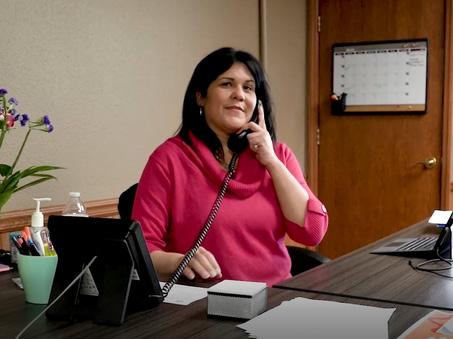
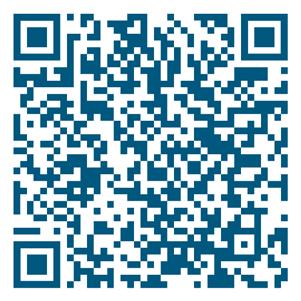
Hilaire Tshombe is a former RISE AmeriCorps member and refugee originally from the Democratic Republic of Congo with a passion for helping immigrants navigate the barriers he once experienced. Since arriving in Iowa from South Africa in 2014, he’s earned a so cial work degree from Mount Mercy University, completed a RISE AmeriCorps term, and started work with the Catherine McAuley Center to help others on their path to success.
Hilaire’s year with the RISE AmeriCorps program kick started his career with the CMC.
Throughout his 2019-2020 term, Hilaire interpreted for clients in Swahili, French, Lingala, and more. He also provided “Cultural Orientations” for new refugees and immigrants as they adjusted to a drastically new life in Cedar Rapids, Iowa. Hilaire says his year with RISE AmeriCorps was formative for gaining non-profit experience with clients from diverse backgrounds.
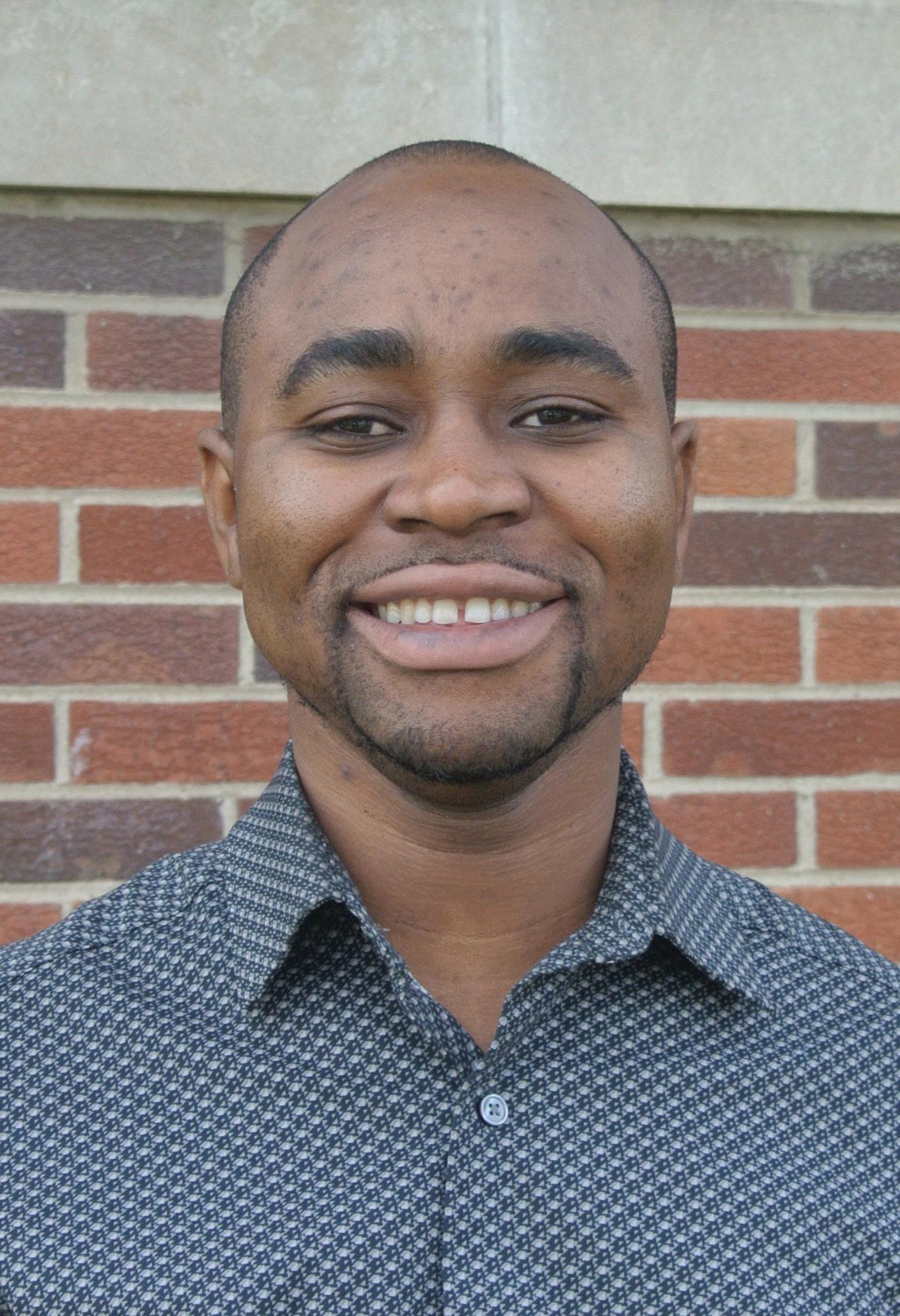
Almost immediately after his RISE AmeriCorps term, Hilare was hired by the CMC as a disaster relief case manager. He was integral to helping the community recuperate from the derecho in August 2020, which struck Cedar Rapids with 140 mph winds equivalent to a Category 4 hurricane.
“Especially for people who came from Africa or refugee camps, they sometimes develop some depression or some PTSD,” Hilaire says. “They remember again the life they were living before and think, ‘We are in America now, why can we suffer again like this?’” Hilaire hopes to empower these struggling clients by teaching them the strategies he used to get by and ultimately achieve success as a new immigrant in Iowa. By teaching them life skills like budgeting and where to receive resources, he hopes to help his clients over come the same financial and cultural roadblocks he lived through only a few years ago.
Meet Hilaire Tshombe“I struggled a lot but I didn’t give up.”
— Hilare TshombeBy JoAnne Potter
EMBARC didn’t exist when Sam Ti Tha Zam first needed it. Sam emigrated from his native Burma after a two year stop in Malaysia, in 2011, two years shy of EMBARC’s advent in 2013. But they were destined for one another anyway. After all, EMBARC was formed with refugees from Burma in mind and their in volvement with Southeast Asia is still strong.
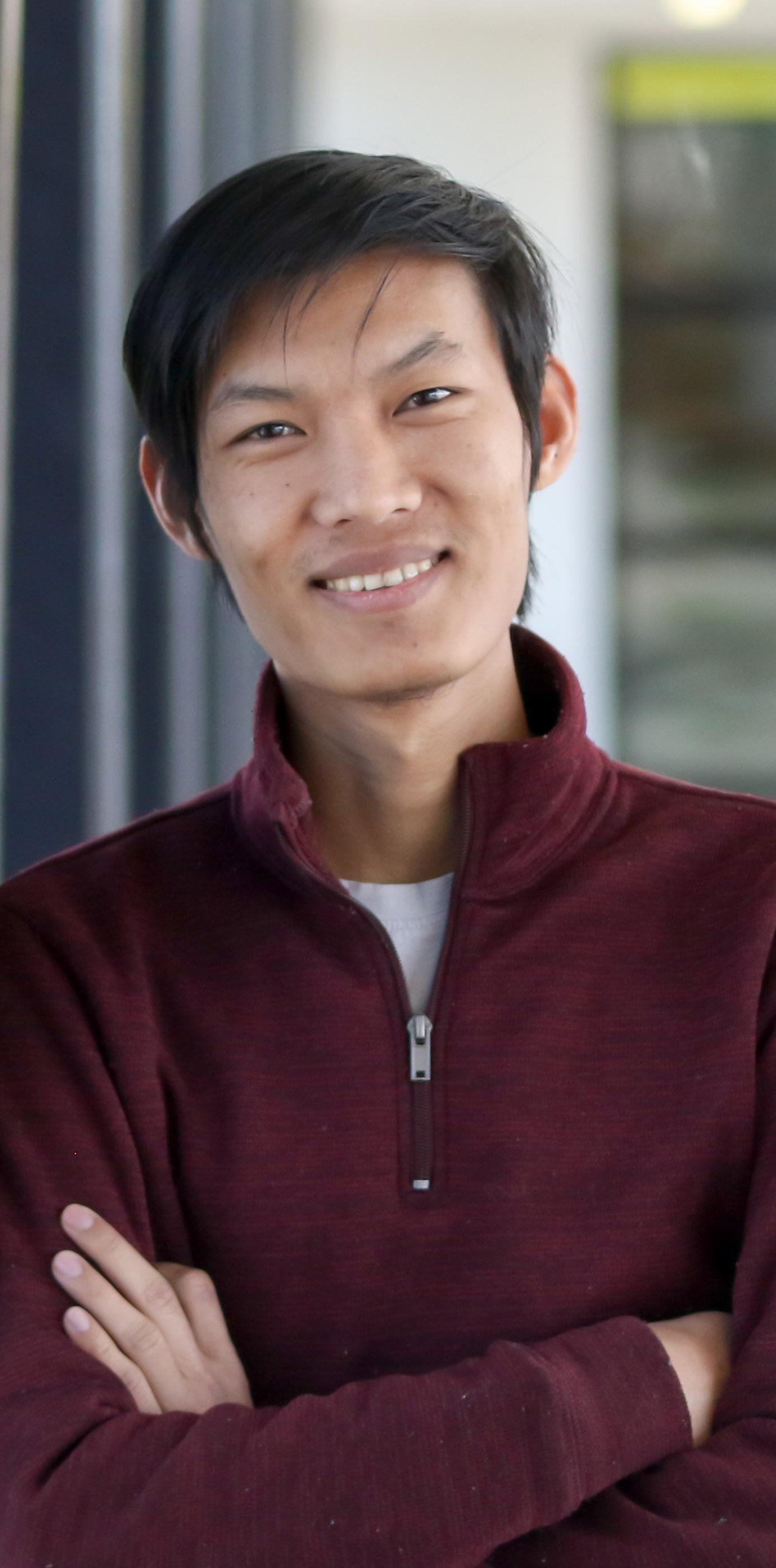
Sam found EMBARC in 2015, while he was still in high school. He worked with them on video projects while he went to Des Moines Area Community College, then formally joined EMBARC’s AmeriCorps program, RISE Ameri Corps in 2020. Sam graduated with a degree in journalism/digital media in 2021 while gain ing related experience at RISE AmeriCorps and EMBARC.
“Des Moines is my place to stop,” he says. “I remember the feeling of fear and confusion, not knowing how to navigate. I understand the feelings of hardship.”
That’s what made Sam a perfect fit for RISE AmeriCorps, where he could offer the kind of help genuinely needed in his community.
There are 107 languages spoken by Burma communities and Sam knows three of the most common. On any given day during his RISE AmeriCorps service term, Sam could be found working with Burma community clients, many who speak his native Falam Chin, read their mail, understand billing, fill out forms, apply for assistance, or participate in a phone call. In addition, he used his education and expertise in videography to record multi-lingual footage that’s been posted on EMBARC’s YouTube channel that explains both skills and infor mation varying as widely as COVID-19 advice, how to register a child in the Des Moines public school system and replacing a filter at home.
Meet Sam Ti Tha Zam
“I love it because I can help people in my community using my own language and culture.”
— Sam Ti Tha Zam
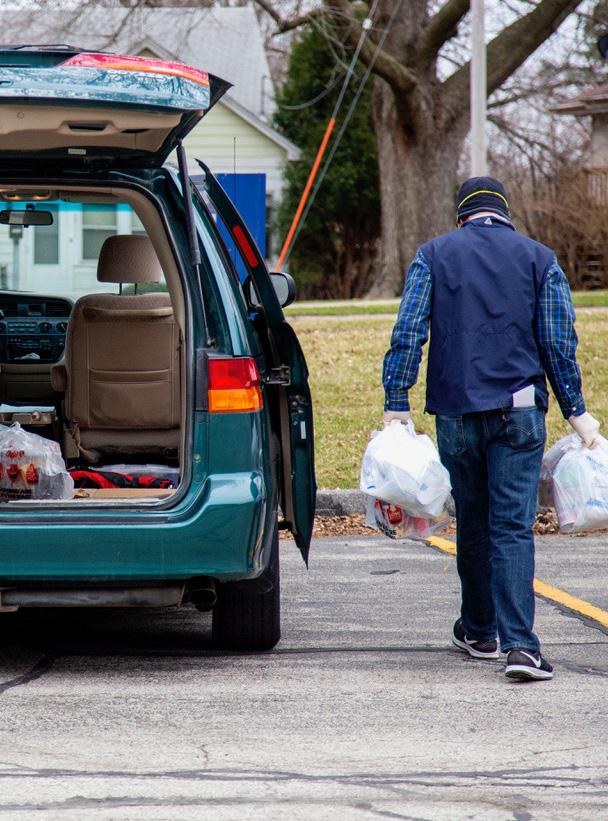
The RISE AmeriCorps mentorship program matches volunteers and members according to their goals. Two pairs of mentors and mentees share what they’ve gained from the experience.
A long-time supporter of EMBARC, Cheryl Long, shares her experiences volunteering with and guiding a Karenni refugee family.
Jim and Charlotte Noble reflect on their years of assisting communities from Burma, from doing service work in Burma to supporting EMBARC.
Learn how to support EMBARC’s future as a volunteer or donor.
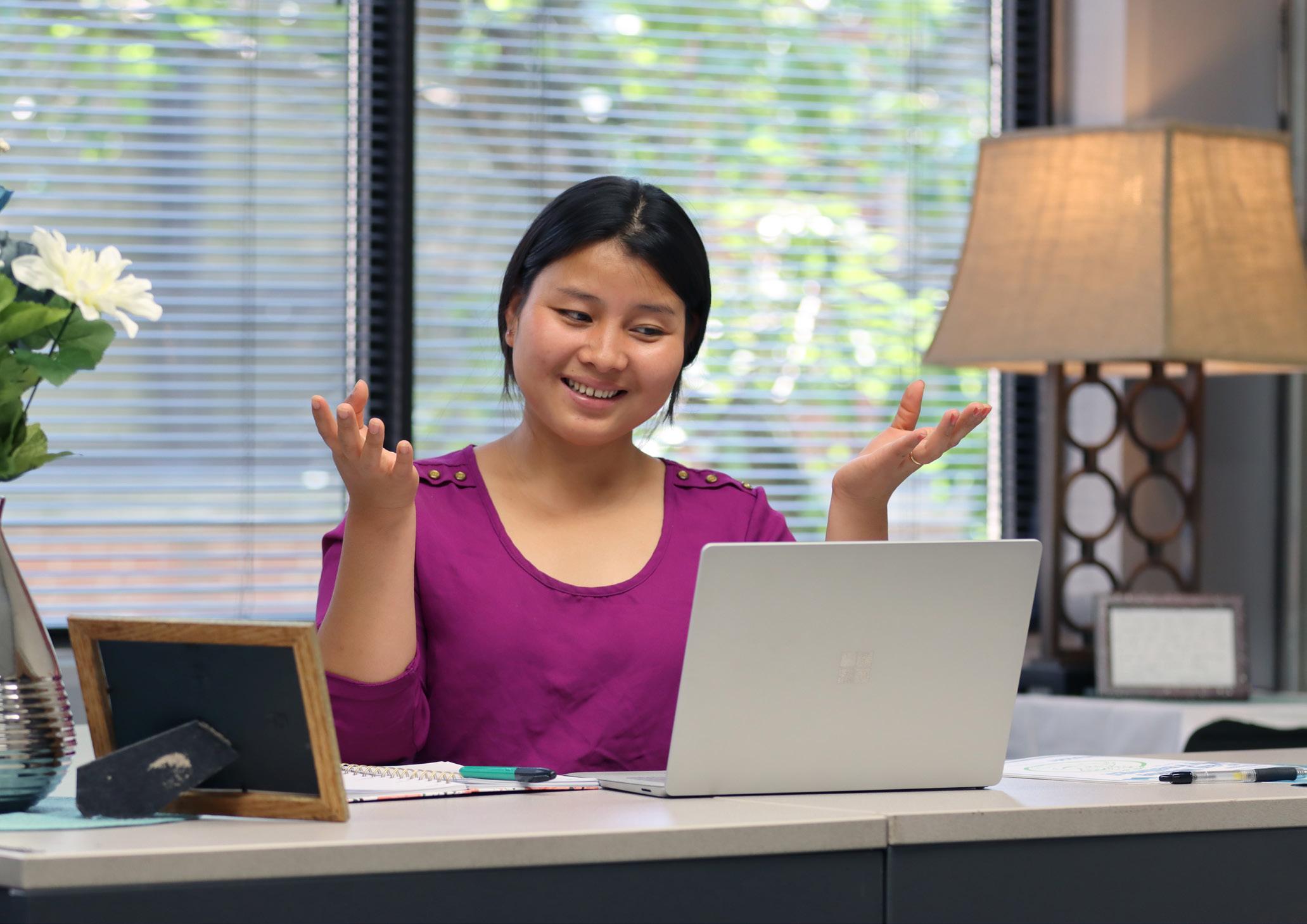
“Our relationship is very enriching.”— Pray MehRISE AmeriCorps Member Pray Meh greets EMBARC class students virtually.
For Pray Meh, a former RISE AmeriCorps member serving Burma community members at EMBARC, a mentorship con nection proved crucial to her experience. An immigrant to the U.S. in 2010, Pray joined RISE AmeriCorps in October 2021 to support her Karenni community. Before ending her service at EMBARC in fall 2022, Pray served as an adult workready and education navigator, teaching IT Navigator classes and assisting unemployed and underemployed community mem bers trying to find work in Iowa.
Soon after joining RISE AmeriCorps, Pray was paired with Dr. Patricia Singer, a retired professor of biology at Simpson College. The two met through a member support coordinator at RISE AmeriCorps as part of the mentorship program.
At first, Pray asked Patricia to help her with a RISE AmeriCorps assignment, developing program documents for EMBARC’s IT Navigator Program. “The first three or so meetings we talked and I edited some of her writing. That’s how I got to know what Pray is doing at EMBARC,” Patricia said. Soon, they moved on to develop broader life skills. “Our rela tionship is very enriching,” Pray said. “Patricia explains to me many different concepts that are very important for me to know, like how to go into what you want to work with, like healthcare or dental assistance.”
Patricia found classes for Pray and forged connections so Pray could find work in her chosen field—healthcare—after leaving RISE AmeriCorps. Together, the two considered career options and the next steps she needs after completing her RISE AmeriCorps term. “[Pray] decided what she really wants to do is work at the reception desk with a clinic or a dental office. So I took a look around to see what kind of jobs are available, like through Mercy One, to maybe line her up with someone who is a receptionist to learn what kind of skills she’d need,” Patricia added.
One of the benefits of their mentorship relationship is talking together, as Pray continues practicing English. “[Pray] is very good at defining what she wants,” Patricia said. “She’s less secure about her ability to communicate in spoken English.Most of her day is spent speaking Karenni. So I can speak English to her, and that’s important. I discovered from Pray that she needs more English-speaking opportunities.”
Patricia’s commitment to supporting refugees extends over 20 years. Decades ago, she assisted three immigrant fam ilies settling from Bosnia to Iowa. As a professor at Simpson, she traveled each year studying global health. When she worked in Thailand, she frequently encountered immigrants from Burma. When Patricia returned to Iowa and encoun tered EMBARC, she decided to support refugees through the program however she could. “What I learned through all my years of studying global health is that refugees come from a horrendous background that we cannot see by looking at them, an unthinkable story behind the faces that we see,” Patricia said.
Pray joined RISE AmeriCorps to help her community, but through mentorship from Patricia she has experienced personal and professional growth. “There are so many experiences I learned about working at EMBARC, including com munication skills, professional development skills, coping skills,” Pray said. “Serving with RISE [AmeriCorps] has impact ed me in many ways, but the most important is my personal growth and success and I am getting a lot of professional development training.”

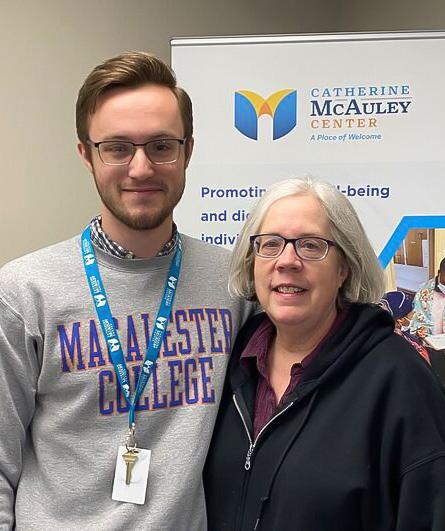
Over lunch, each week, just down the block from each other’s organi zation, RISE AmeriCorps Member David Clower and First Lutheran Church Food Services Coordinator Ruth Ehrhardt bonded over their shared passion for community service. Together, they strategized Clower’s plans for the future and ways to connect resources for the Af ghan refugees Clower primarily serves. “I got super lucky because Ruth has an incredible wealth of experience that she has been able to share with me,” Clower said.
The RISE AmeriCorps mentorship program gives members the unique opportunity to gain professional and personal connections to lead them successfully into their next season of life. RISE AmeriCorps members are carefully matched with men tors according to their ambitions. The pairs then meet for one hour per week for at least six months, talking through steps to meet their goals.
When Clower entered the mentorship program at the beginning of his service term with the Catherine McAuley Center (CMC), he was in the early stages of applying to grad uate school. Each week, Ehrhardt sat down with him to touch base on his progress and talk through decisions. Clower has since been accepted into the Humphrey College of Public Affairs at the Uni versity of Minnesota and will start classes toward a master’s in human rights in the fall.
However, Clower said one of his mentor’s largest impacts was sup porting his RISE AmeriCorps service with CMC. Through Ehrhardt’s widespread network of connections in the community, she provided logistical support as Clower set up housing and resources for newly arriving refugees from Afghanistan. The pair collaborated to recruit
teams of volunteers and source furniture for refugees’ new homes. “We had resettled Afghan arrivals over the last six months and could not have done it without community support,” Clower said. “But I in particular could not have done my role without Ruth’s support.”
As the food services coordinator at First Lutheran Church, Ehrhardt fills an essential role in coordinating resources for the local homeless population. Previously, she spent decades working in social services and as a registered nurse. Five years spent in West Africa also strength ened her interest in refugee resettlement, which is a field Clower is in terested in entering.
“I kind of have the heart for and the understanding of being a stranger in another place, because I’ve been there [in West Africa] and people were good to me,” Ehrhardt said. Ehrhardt’s commitment to guiding youth also runs deep as a former foster mother to several hundred children and teenagers over the years. Now mento ring her second RISE AmeriCorps member, she said connecting with youth helps keep her young and in touch with the world.
“We can all do small things in the places where we are. That’s what keeps me going everyday,” Ehrhardt said. “Giving encour agement to each other regardless of generation or what area they’re working in is always a positive thing.”
In turn, Clower said his mentor relationship with Ehrhardt inspires him to emulate her lifelong dedication to helping others. From Eh rhardt, he learned it is possible to make huge impacts in the communi ty. He hopes following in her footsteps in this way can always be a part of his life.
“We can all do small things in the places where we are.”
Mentor Ruth Ehrhardt
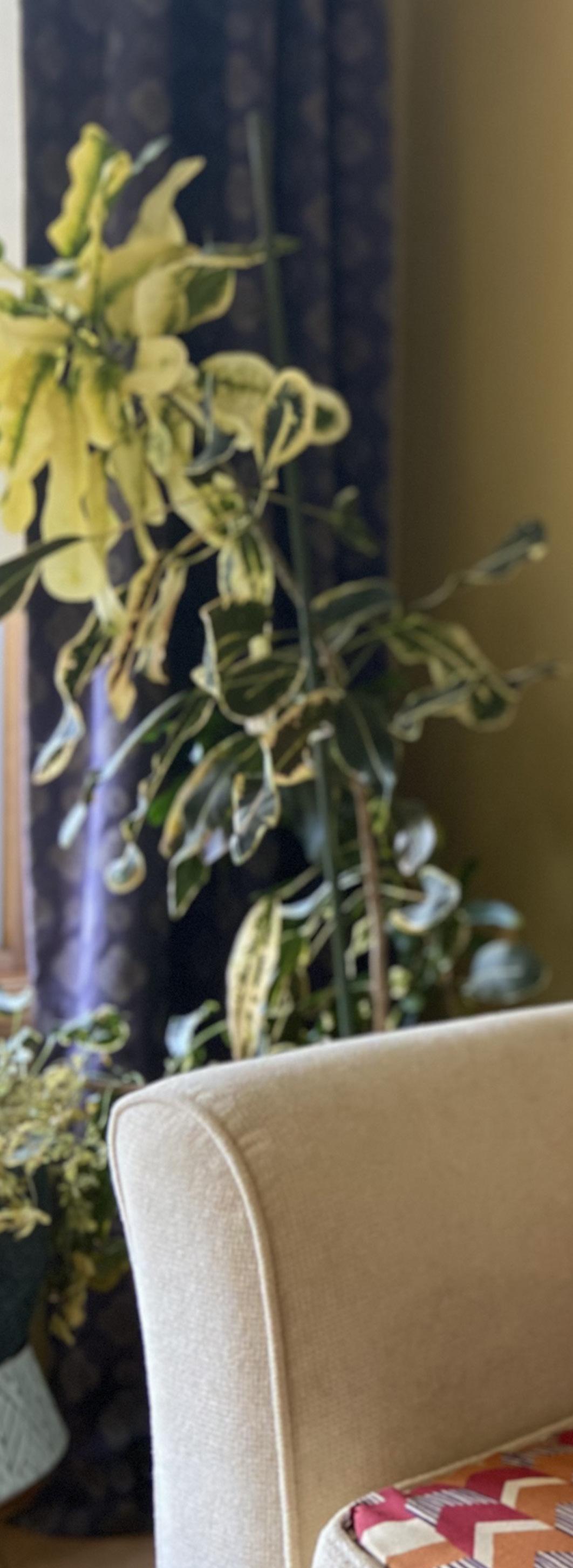 By Julia DiGiacomo
By Julia DiGiacomo
After spending about a decade supporting a Karenni refugee family, Cheryl Long’s commitment to EMBARC and the refugee community from Burma runs deep. As an EMBARC volunteer and donor, Long started assisting a family soon after they fled Burma for the U.S. Through a program with the Department of Education, Long was initially only asked to show the family around the city for four hours per month. Instead, Long dove into the many problems new refugees face and became their personal supporter for years.
Over the course of her relationship with the Karenni family, Long was on hand to guide them as they adjusted to a new life in Iowa. Long assisted the mother, Tin Tin*, who was incredibly motivated to learn to read, write and speak English. Together, they also studied for the U.S. citizenship test, which Tin Tin successfully passed. A turning point in the lives of the Karenni family occurred through Habitat for Humanity. When the chance for a house through Habitat for Humanity arose, Long presented the opportunity to Tin Tin and strongly encouraged her to apply. After years of struggle with landlords and apartments, Long knew that owning a home was essential for their long-term stability in Iowa.
Habitat for Humanity’s program provides safe, affordable housing for low-income individuals. Along with financial training, their program creates a route to owning a house for many who might not other wise have the opportunity. Tin Tin’s family was selected to receive housing assistance through Habitat for Humanity and successfully became first-time homeowners in the United States.“Their lives pretty much changed then,” Long said. “They still struggle with a lot of things, like before. But I think their lives will be a whole lot better than when they started.”
Eventually, the Karenni family was able to sell their first home and are living in a new house in a mid dle-class neighborhood in Des Moines. These days, Long still regularly talks with Tin Tin and her family and is ready to support as needed, from maintenance support in their new place to just checking up. Long’s passion for helping people from across the world was inspired by her own upbringing with immi grant grandparents in Chicago, a city filled to the brim with diverse languages. She now enjoys learning languages, is fascinated with other cultures and regularly connects with people from other countries, including by hosting international guests for Spanish-English language exchanges.
The German immigrants in Long’s family also helped her realize at a young age how important immi grants are in the fabric of America. Long said her own relatives initially struggled as newcomers in the United States. But over each generation, the family’s prospects and opportunities grew. Long hopes to help other families who recently arrived in the U.S. succeed in a similar way, so every generation will be more secure than the last.
*Name changed for privacy
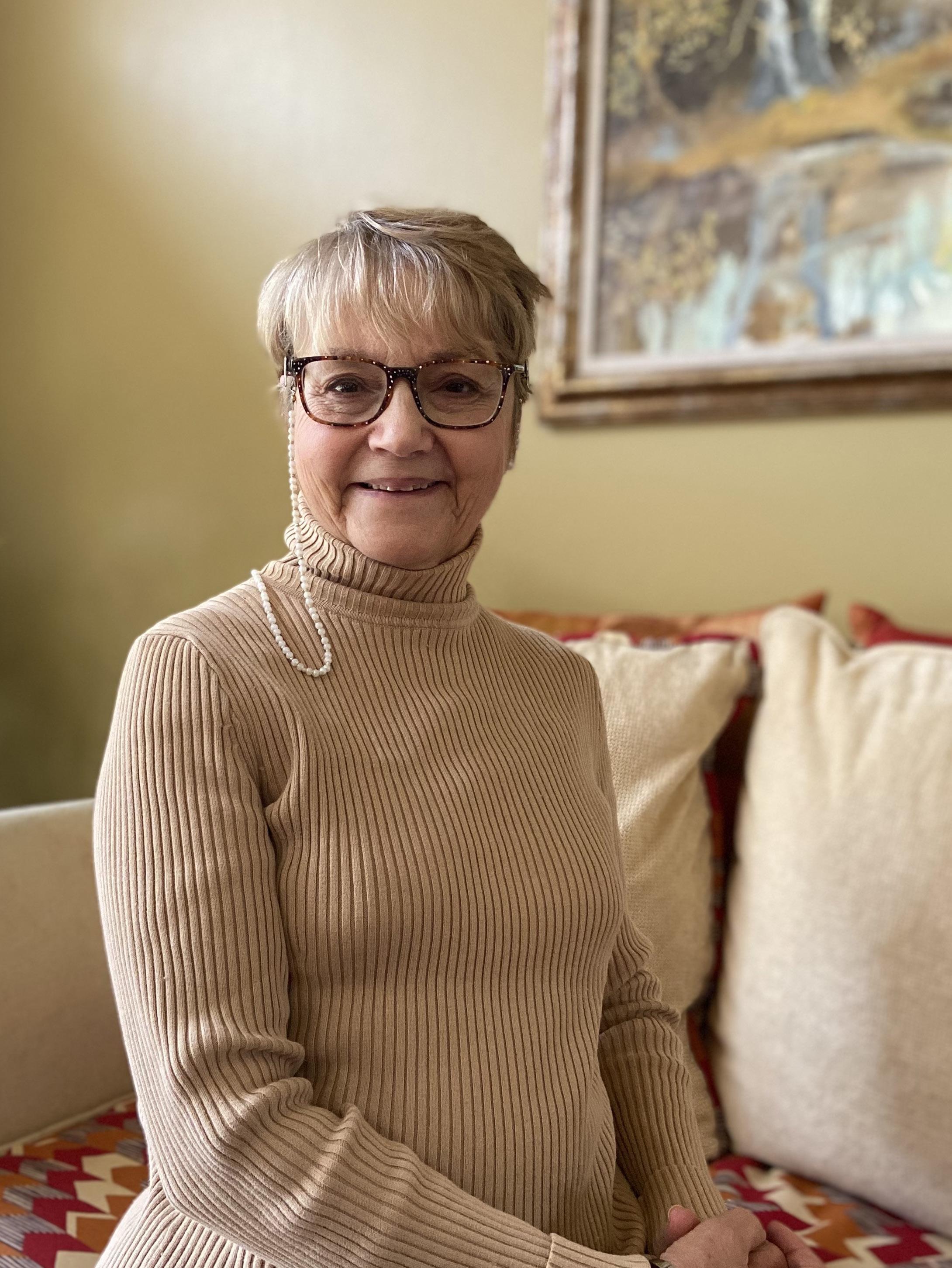
“I always wanted to give back.”Volunteer Cheryl Long
Seeing first-hand the way of life in impoverished and under-resourced communities will no doubt drive a good person to lend a helping hand. For Jim and Charlotte Noble, this hand has been outstretched for over 30 years, with no end date in mind. EMBARC is grateful to the Nobles for their years of service, giving nature, and passion for serving the community.
The Harlan, Iowa natives made Des Moines their home base in 2008, but have never stayed put for long. Travel ing across the country and around the world has opened the couple’s eyes to a diverse range of needs in many dif ferent communities.
The Nobles’ stretch of service work began in 1990 with the organization So Others Might Eat (SOME). They served with SOME in Washington D.C. for over a decade, volunteering with the houseless community. In 2003 the couple came across an opportunity to serve overseas with the Maryknoll Fathers and Brothers, a nonprofit mission focused on service work outside of the United States. For the next seven winters Jim and Charlotte traveled to Thailand and Burma, teaching English in ref ugee camps and monasteries. After their service in Asia, they took off for California for a short period of time, helping incoming Burmese refugees resettle.
The couple’s service work with the Burmese commu nity struck their hearts in a new way. The experiences of many refugees, immigrants and internally displaced peo ple opened the Nobles’ eyes to an underprivileged com
munity with challenging needs they hadn’t encountered before. It was especially difficult to teach English to stu dents who had little education in their native language. But it was important to the couple that the students con tinued their education after they were gone. Their hope was that knowing English would help give the students better opportunities for their future.
“Education in the passport out of poverty,” Charlotte said. The Nobles’ connection with the Burmese commu nity came full circle when they began working with EM BARC shortly after the organization’s start in 2012. They both said that it felt like a natural progression because of their previous volunteer experiences. Jim even served on the board for a short period.
Both Jim and Charlotte are happy that they can still help the Burmese community even though they are not there physically. One experience was with a couple living in Perry, Iowa. The Nobles helped them study for their citizenship tests. They would go over to their house a couple times a week to study test questions and help with their English skills.
They had to stop their lessons when the COVID-19 pandemic hit, but urged the couple to continue studying on their own. Several months later they received a call from the couple saying that they had passed their tests, and thanked the Nobles for their help.
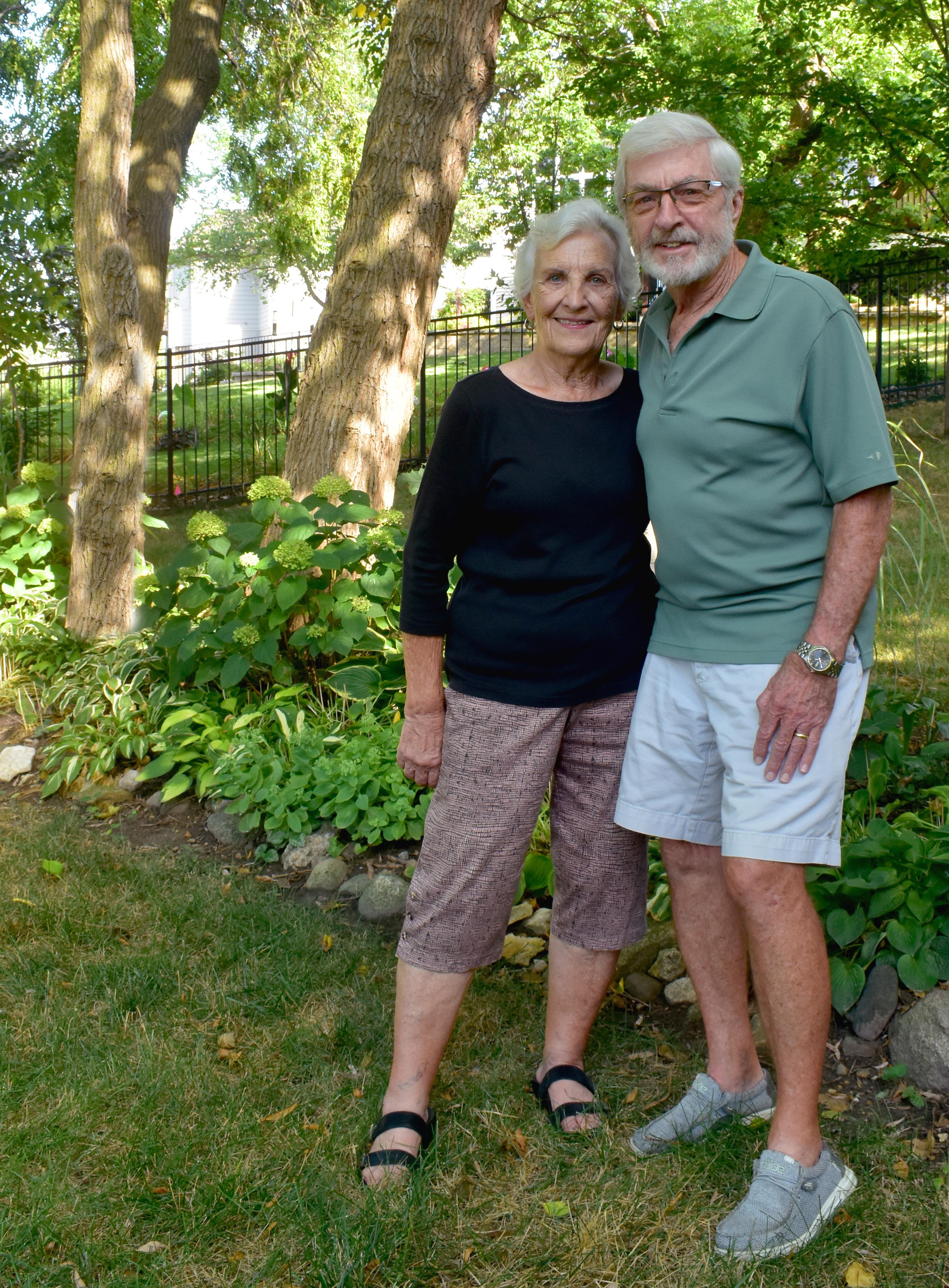
“People say, ‘Well do you do any good?’ and we say, ‘We don’t know if we do any good, but they do good for us.’ It works in reverse,” Charlotte said.
The Nobles also give monetary donations to EMBARC. They take comfort in knowing that the organization will use their donations to improve the lives of the they serve. “We know that what ever we donate is going to good use. I don’t have to ask how they’re doing it or what they’re doing, I just know it’s going to be well done,” Jim said. “We have a lot of faith in what they’re doing.”

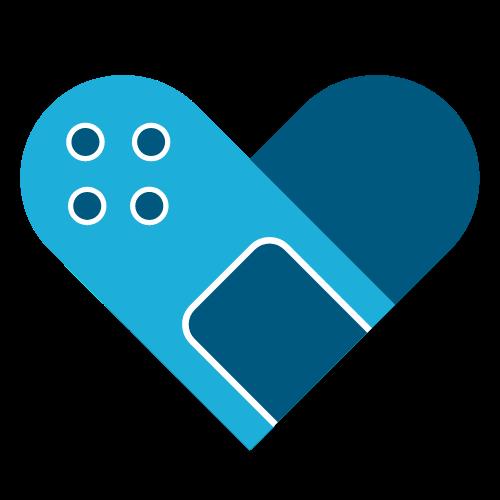

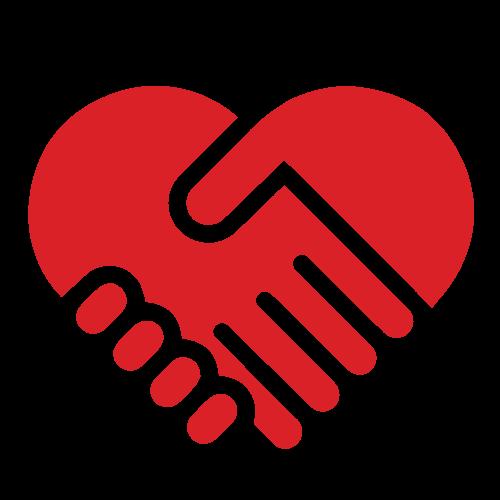
EMBARC appreciates financial contributions of any amount to sustain our refugee-led programs and services. Donations support advocacy, community development and education for immigrant and refugee communities across Iowa. Our services also ensure access to food, shelter, transportation and healthcare. As a 501(c)(3) nonprofit organization, all donations to EMBARC are tax-deductible.
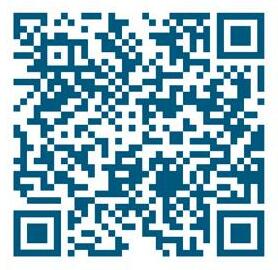
Look after the children of immigrant and refugee families while their parents attend EMBARC classes and services.
Use your bilingual or multilingual skills to help others communicate and access infor mation in their language.
Connect immigrant and refugee clients with public assistance and community-based resources.
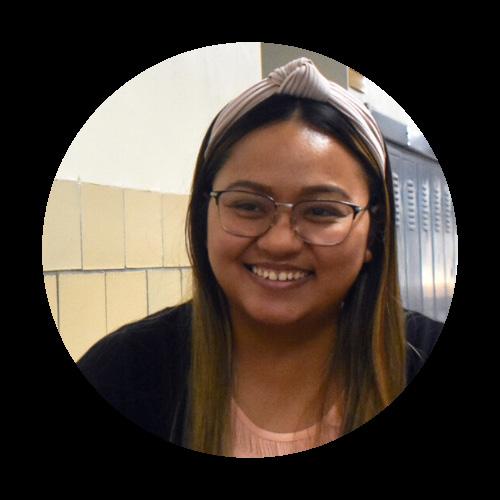
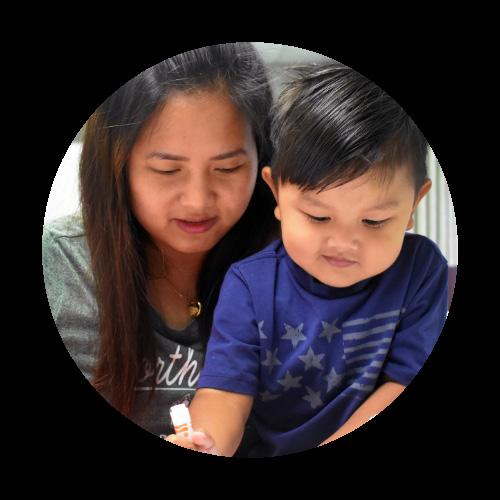
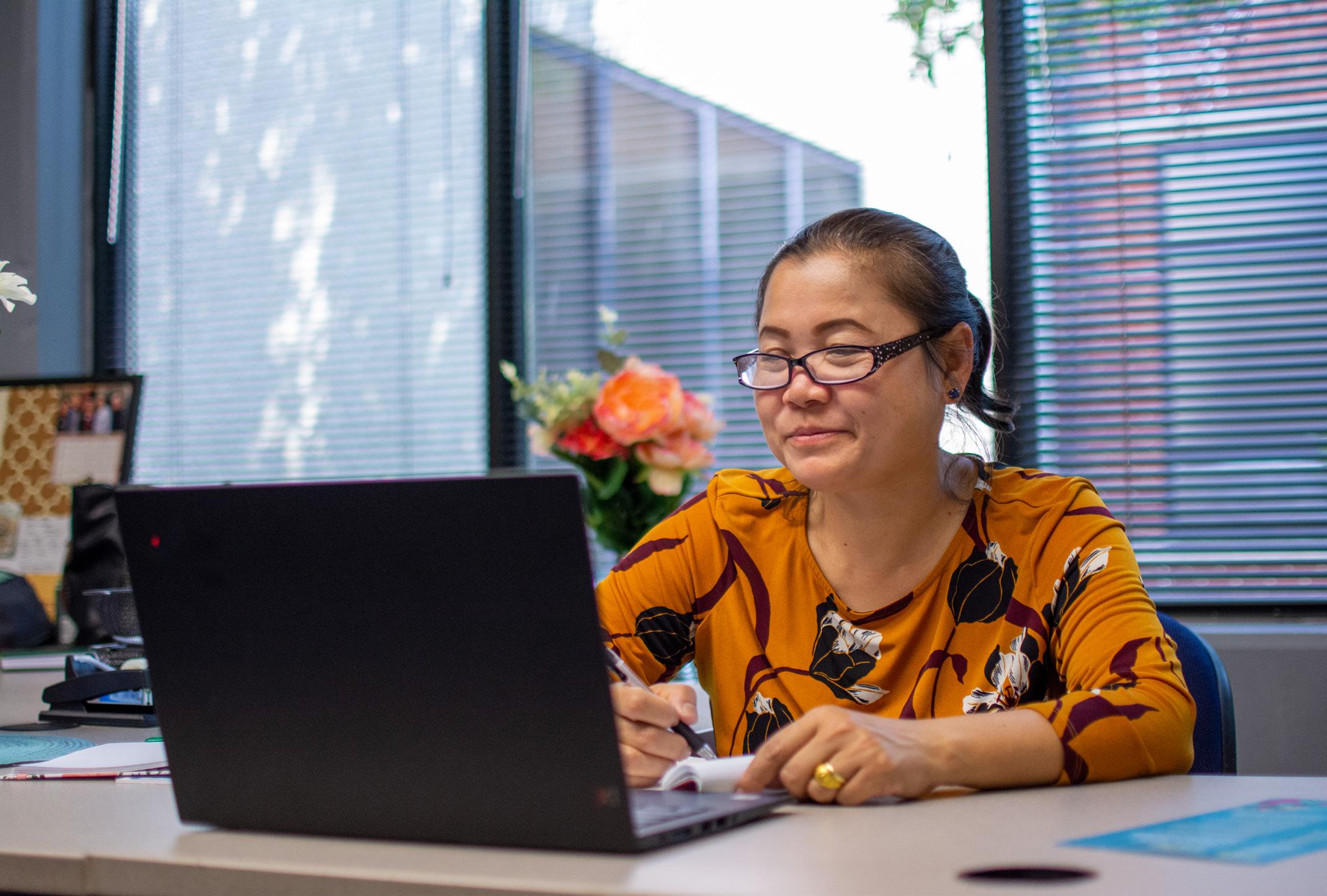
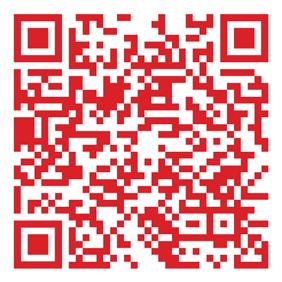
Use your time and personal or professional skills to empower ethnic communities across Iowa. Volunteers can serve in-person or remotely, for one-time events or through repeated service. Learn more by scheduling a volunteer interest meeting through the QR code.
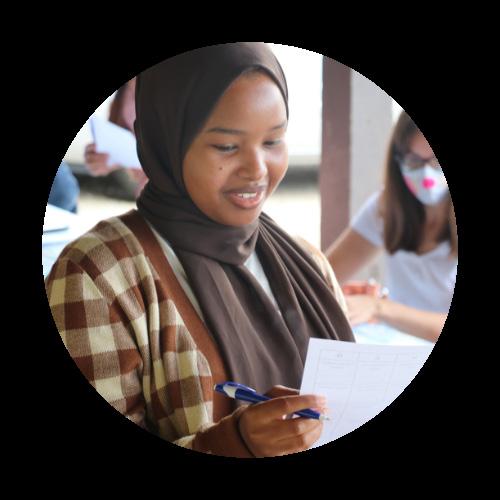 EMBARC Family Advocate and Lead Parent Navigator Iris Tun.
EMBARC Family Advocate and Lead Parent Navigator Iris Tun.
The stories and successes of 2021-2022 would not have been possible without our philanthropic supporters. Thank you for believing in our mission.
AARP
American Family Insurance
AmeriCorps
Amerigroup Iowa, Inc.
Black Hawk County Gaming Association
Business Women’s Association Foundation
Candeo Church
CAPACD
Cathedral Church of St. Paul
CDC Foundation
Cedar Valley United Way
Chrysalis Foundation
Community Catalyst Community Foundation of Northeast Iowa
Crime Victim Assistance Division
Delta Dental of Iowa
Iowa Department of Education
Iowa Department of Public Health
John Deere
Microsoft Northwest Area Foundation
Office of Refugee Resettlement
Otto Schoitz Foundation
Plymouth Church
Polk County Board of Supervisors
Polk County Decategorization
Polk County Early Childhood Iowa
Polk County Health Department
Schultz Family Foundation
TDW+Co
Tyson Foods
U.S. Cellular
U.S. Department of Health & Human Services - We Can Do This Campaign
U.S. Department of Justice - Office on Violence Against Women United Way of Central Iowa University of Minnesota National Resource Center for Refugees, Immigrants, and Migrants Urban Institute
Volunteer Iowa Westfield Insurance
We apologize for any omissions or errors in recognizing our philanthropic funders. Thank you for partnering with us to advance our mission.
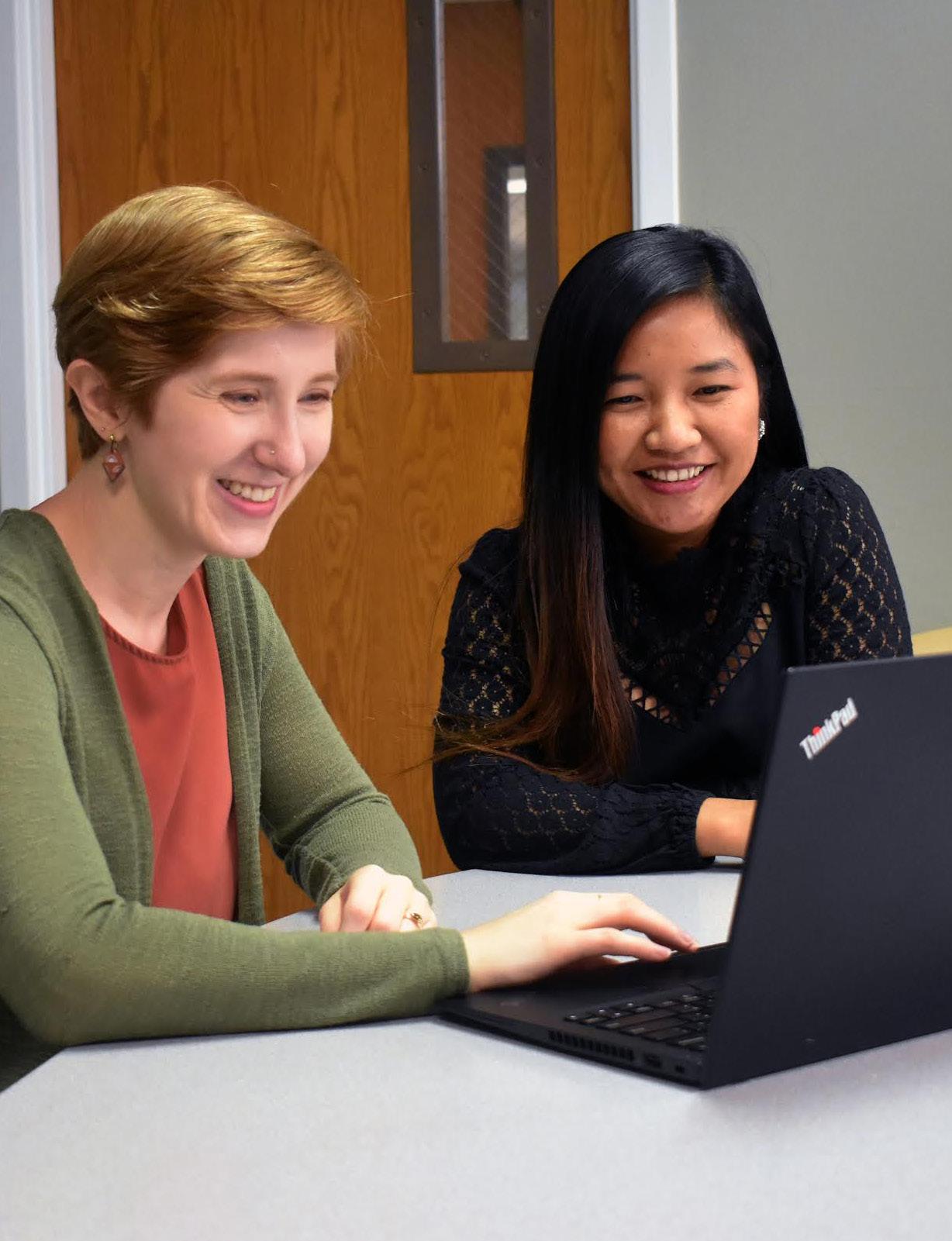 Crisis and Advocacy Program Manager Alex Nassif and Crisis and Advocacy Program Coordinator Dim Muan Kim
Crisis and Advocacy Program Manager Alex Nassif and Crisis and Advocacy Program Coordinator Dim Muan Kim
Scan the QR code below to learn more about what community-based service means to EMBARC. Explore an interactive map with stories from across Iowa.







